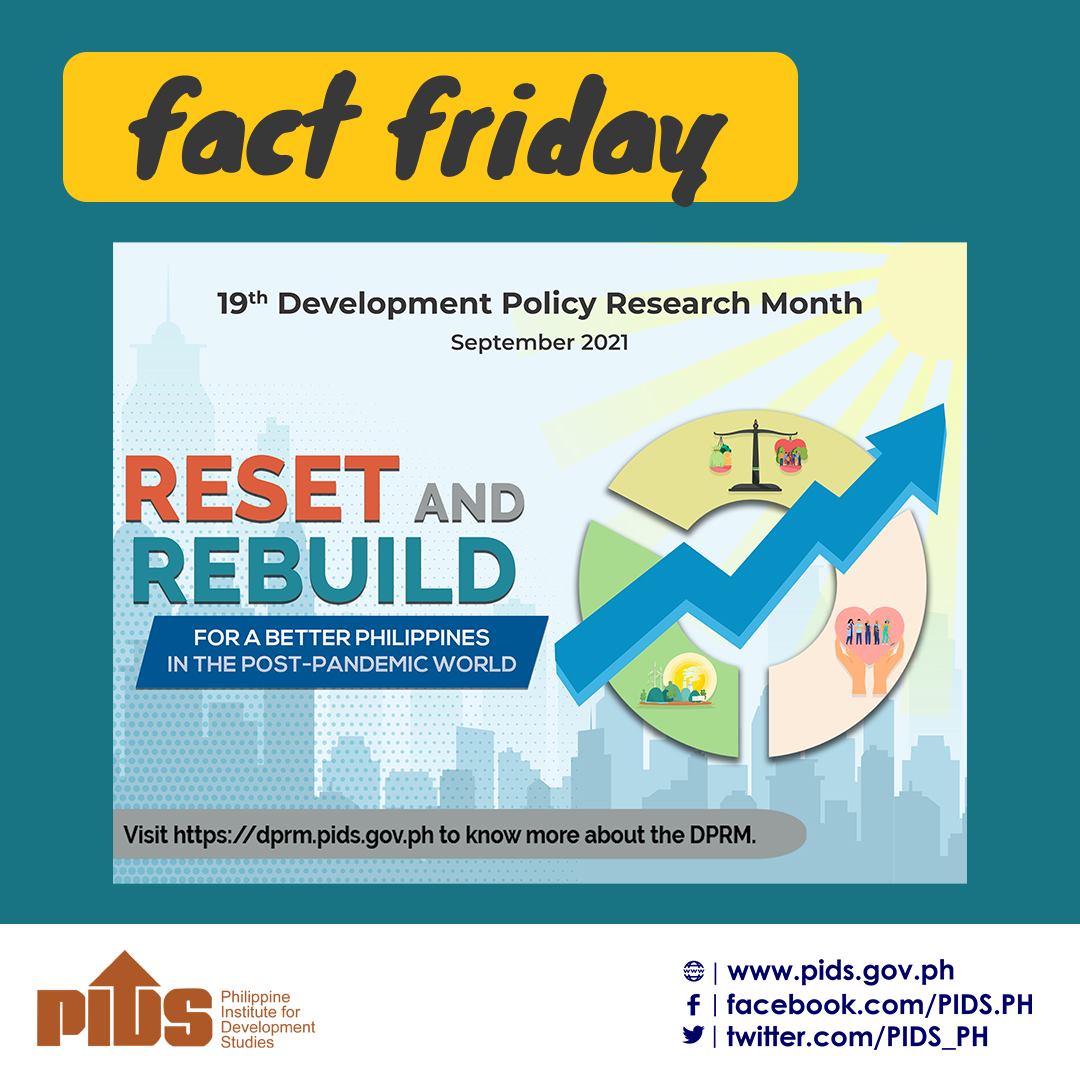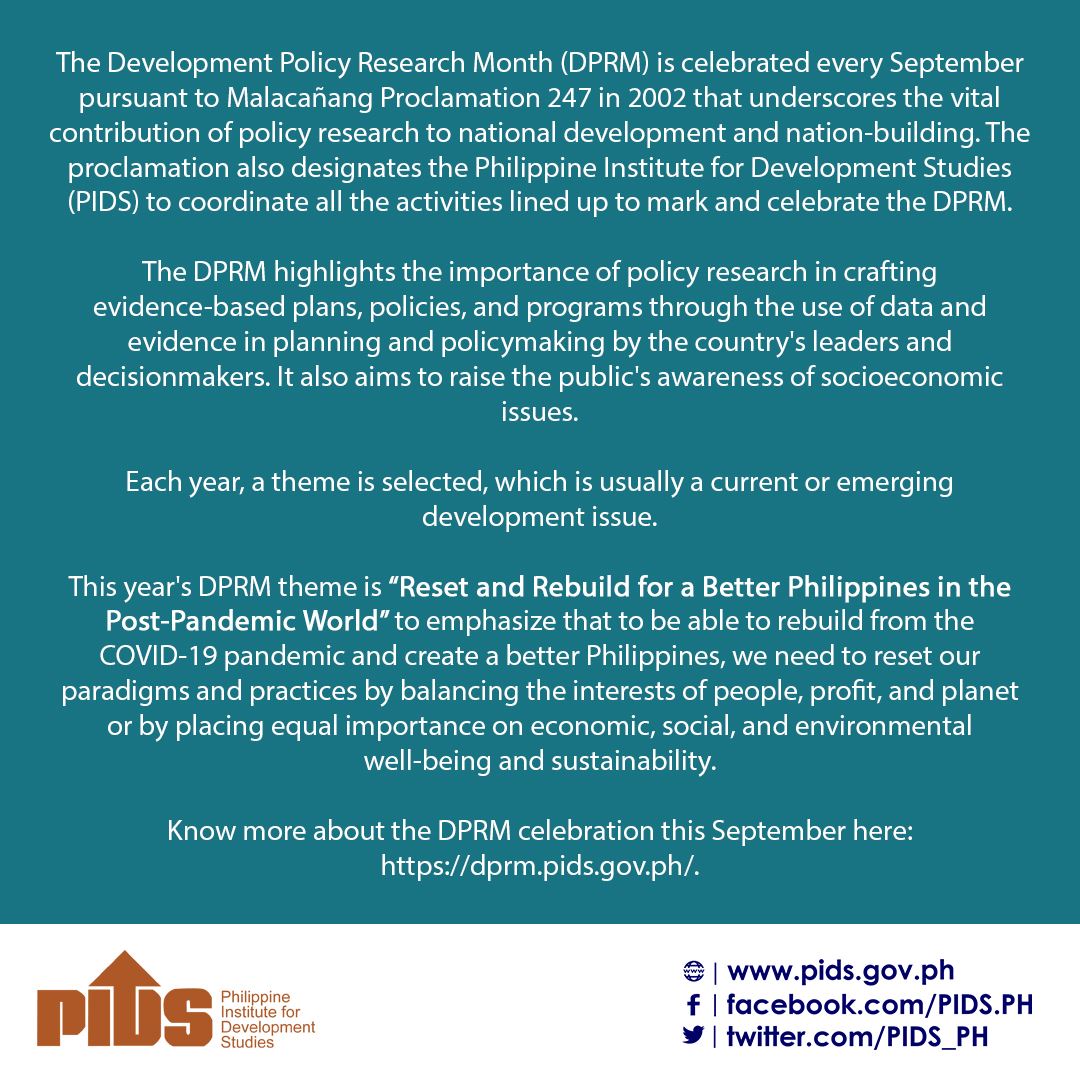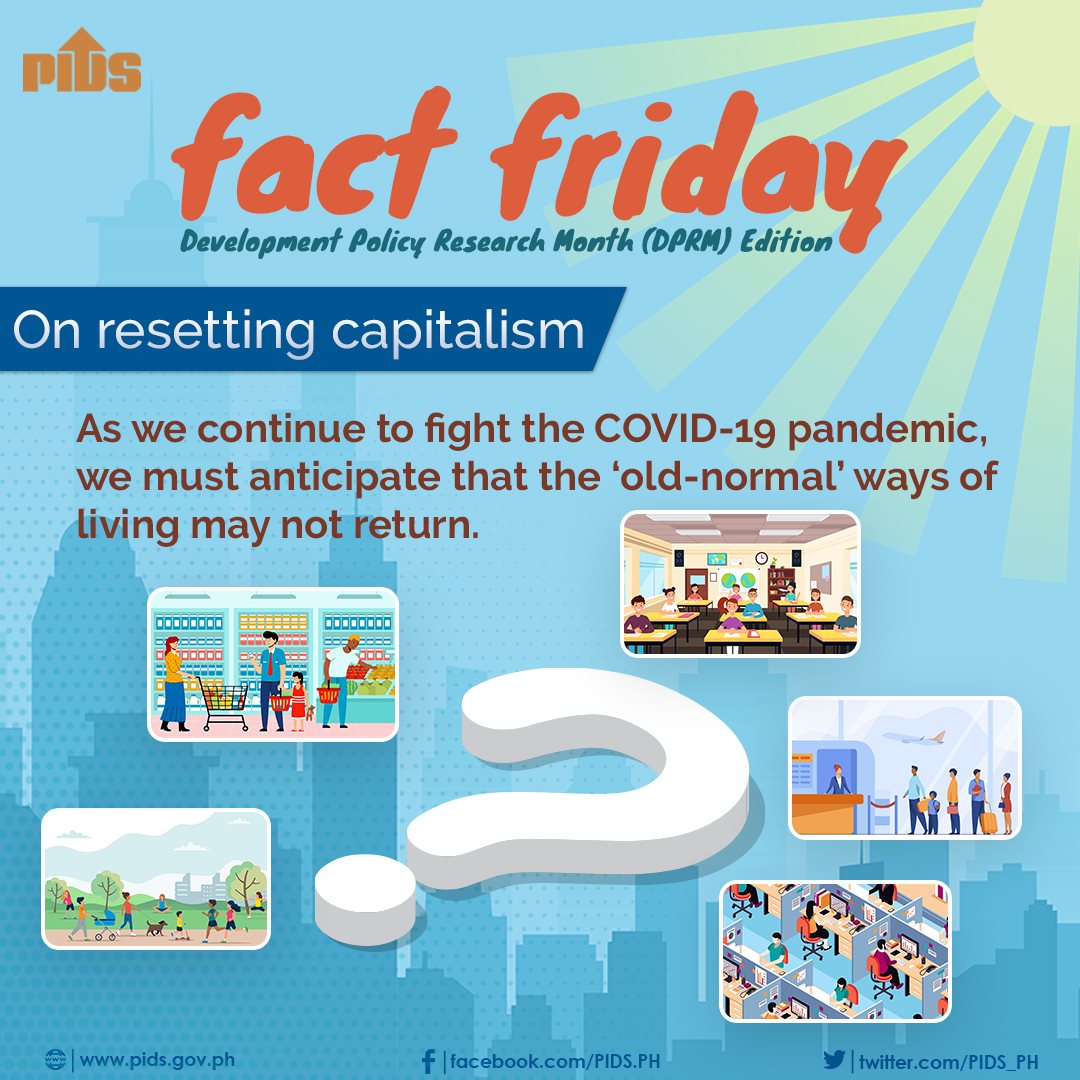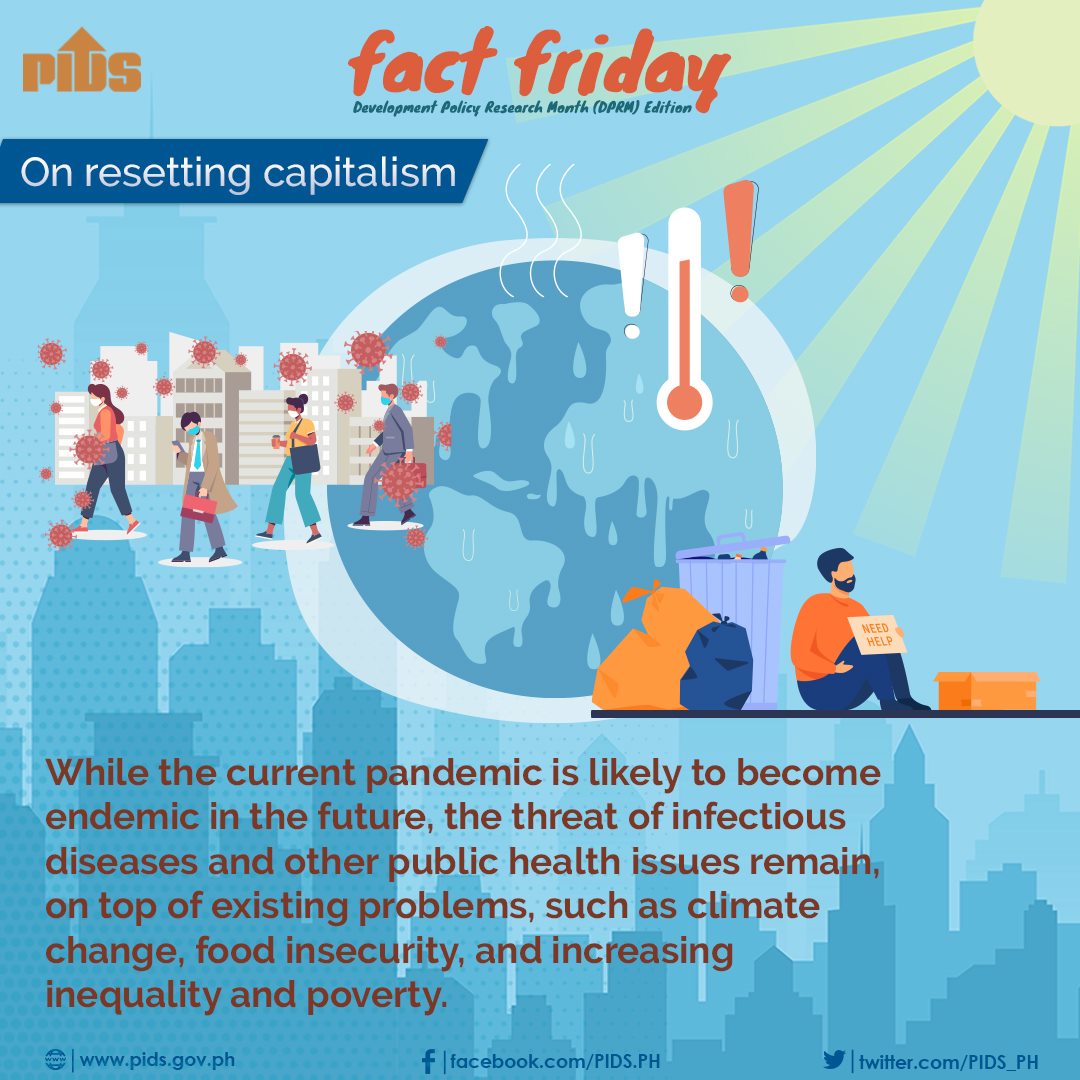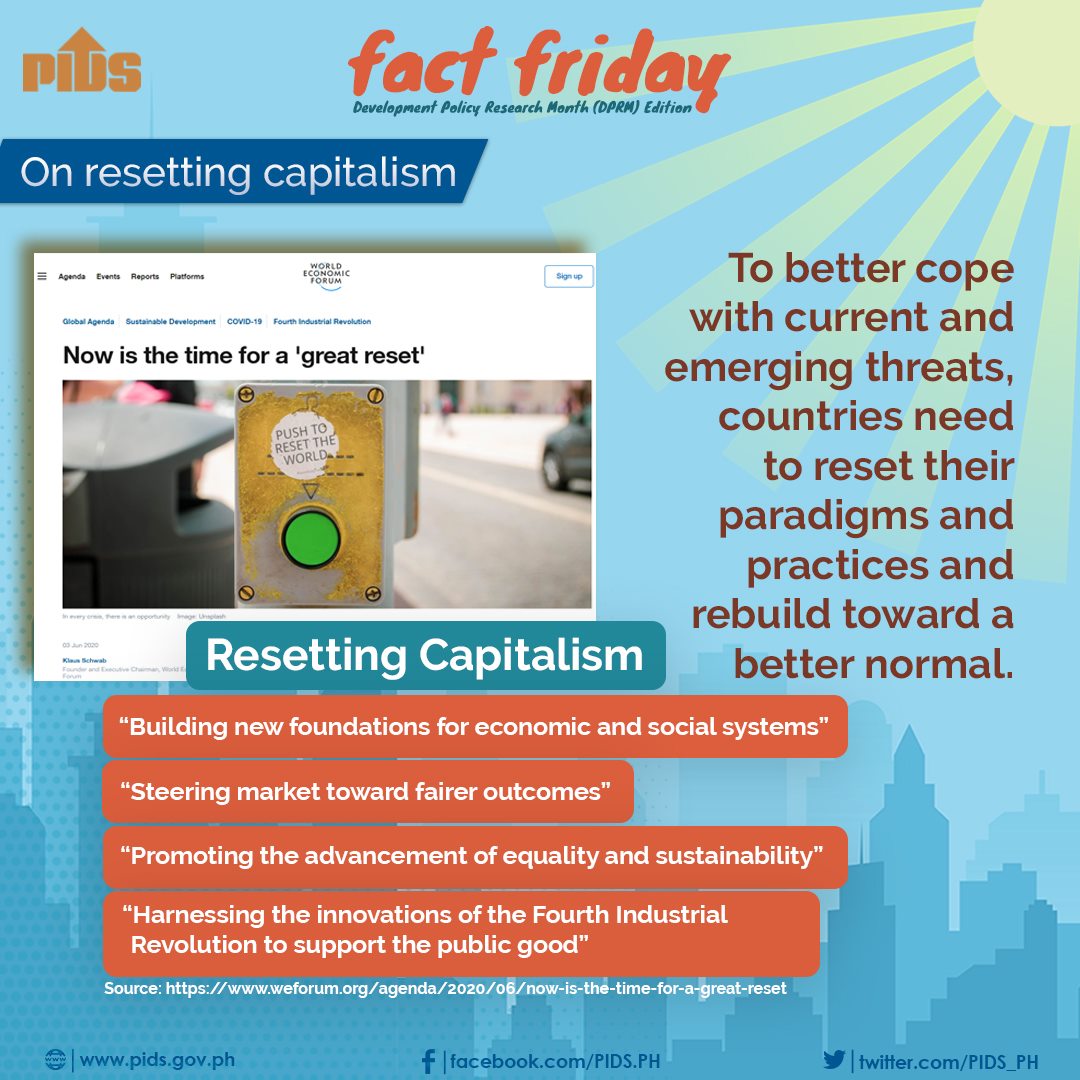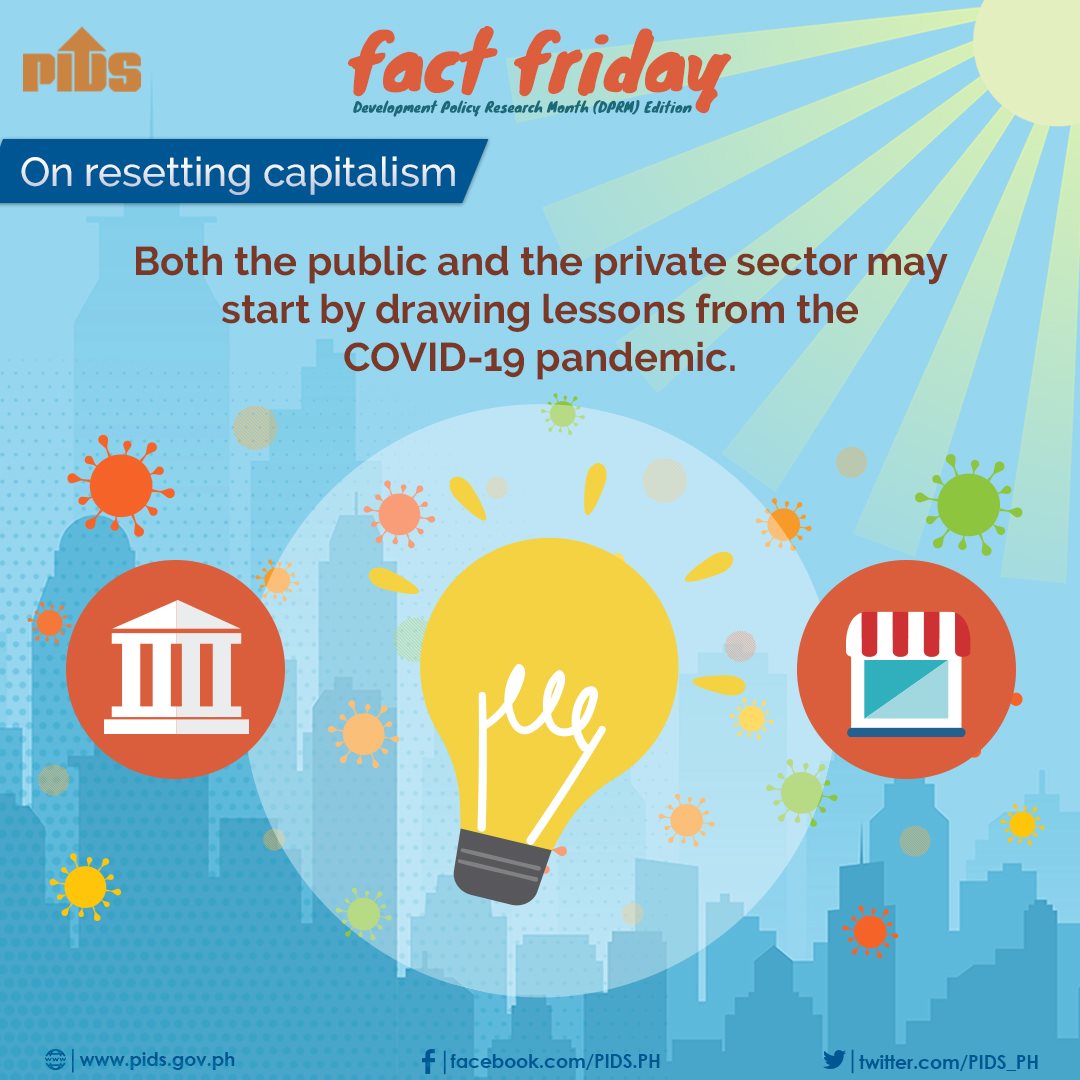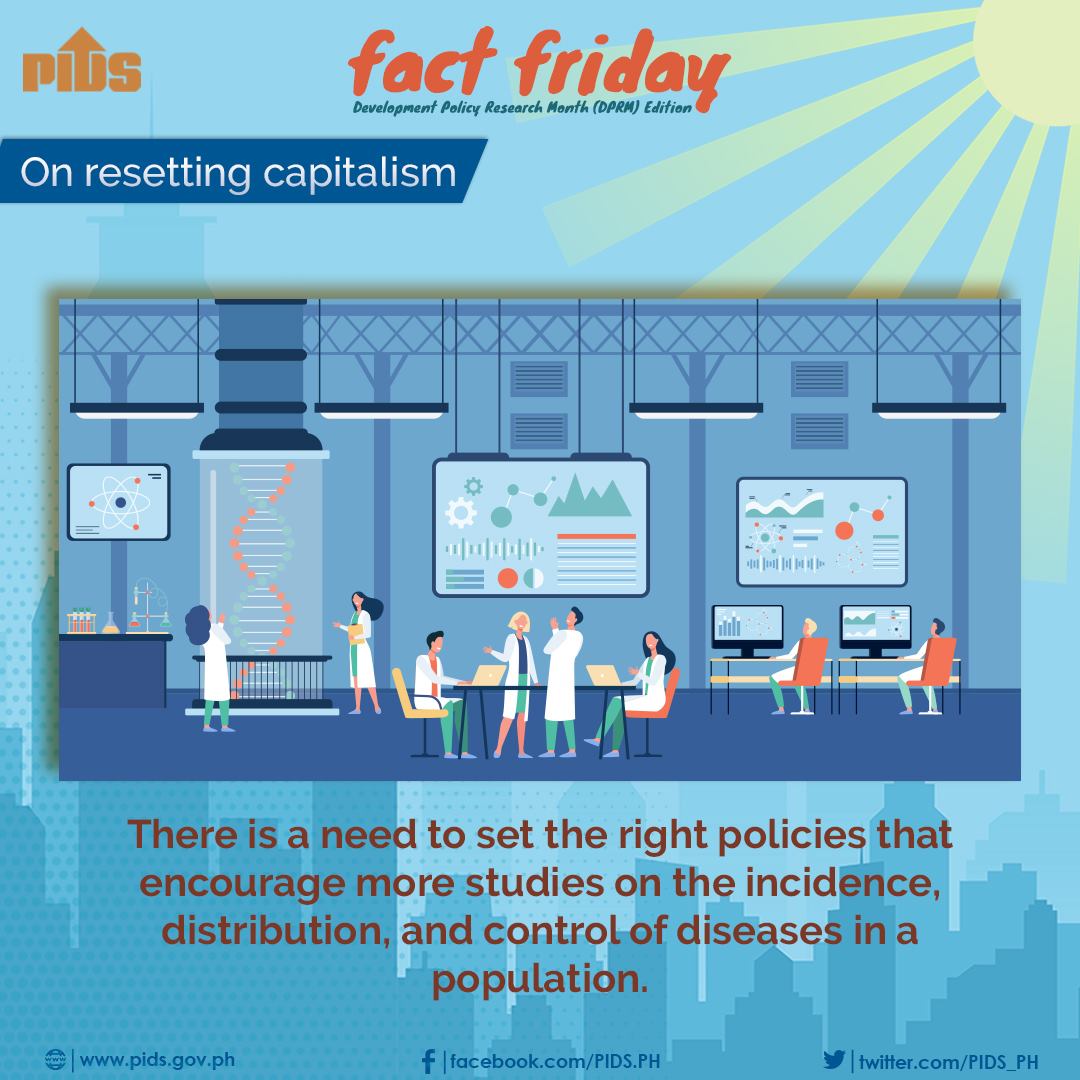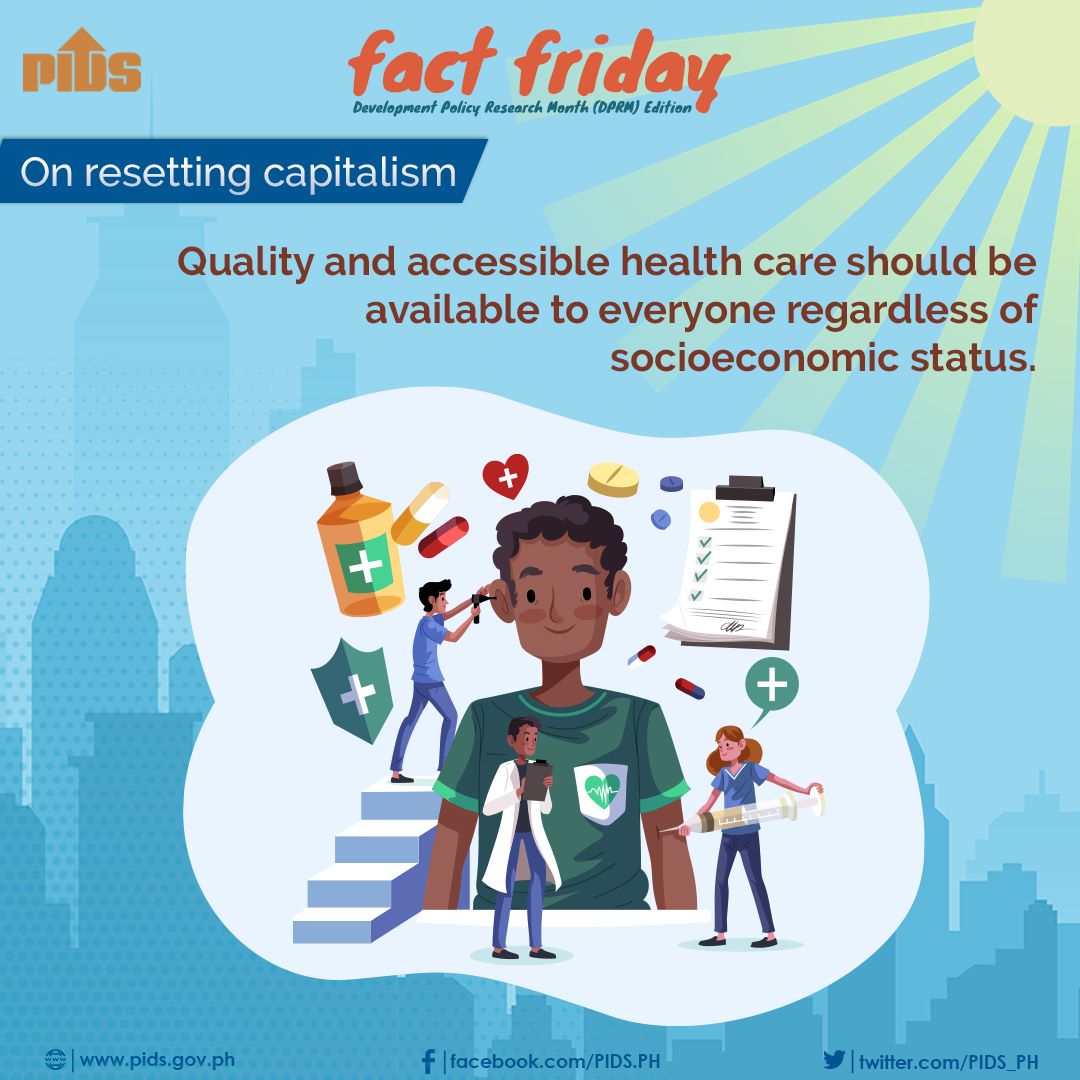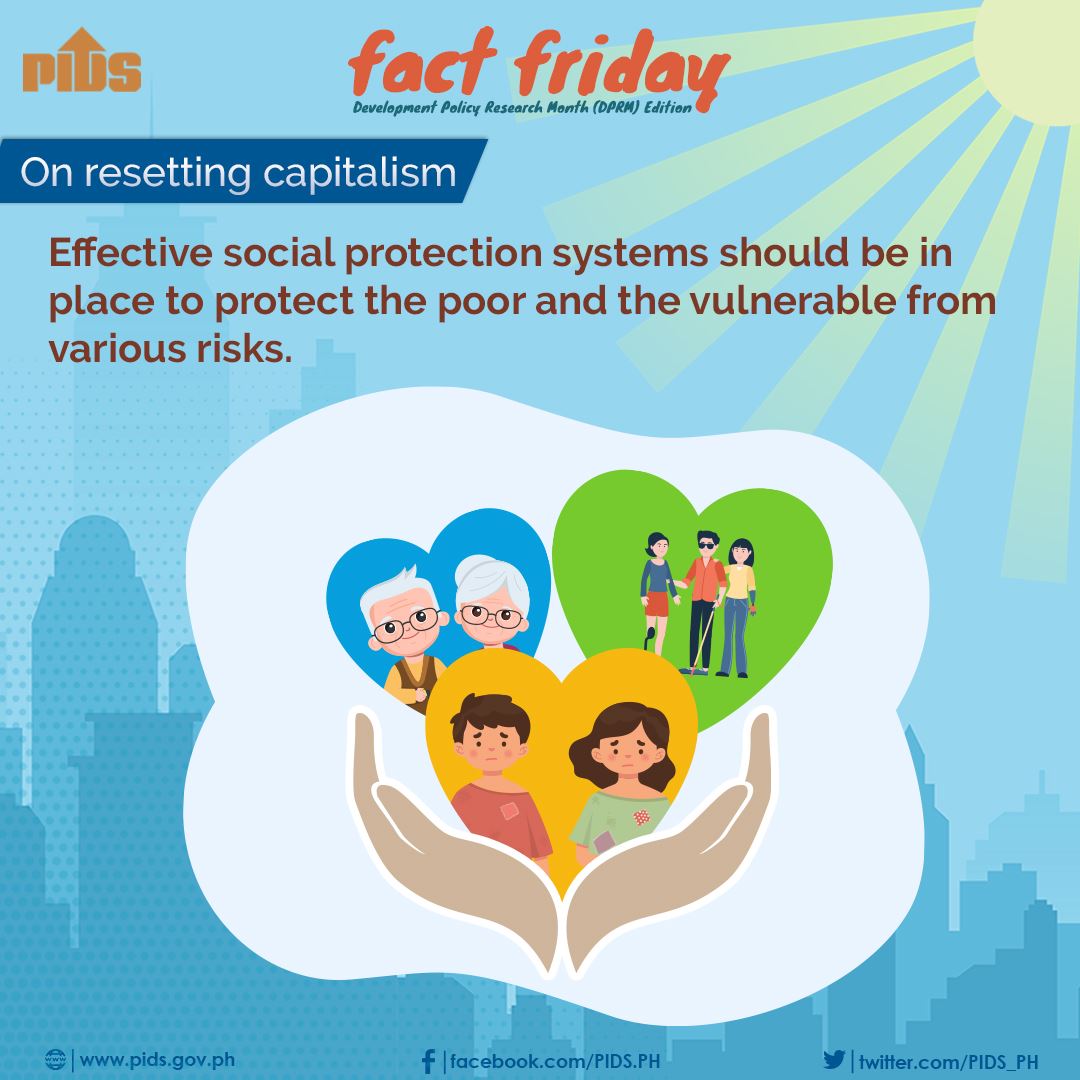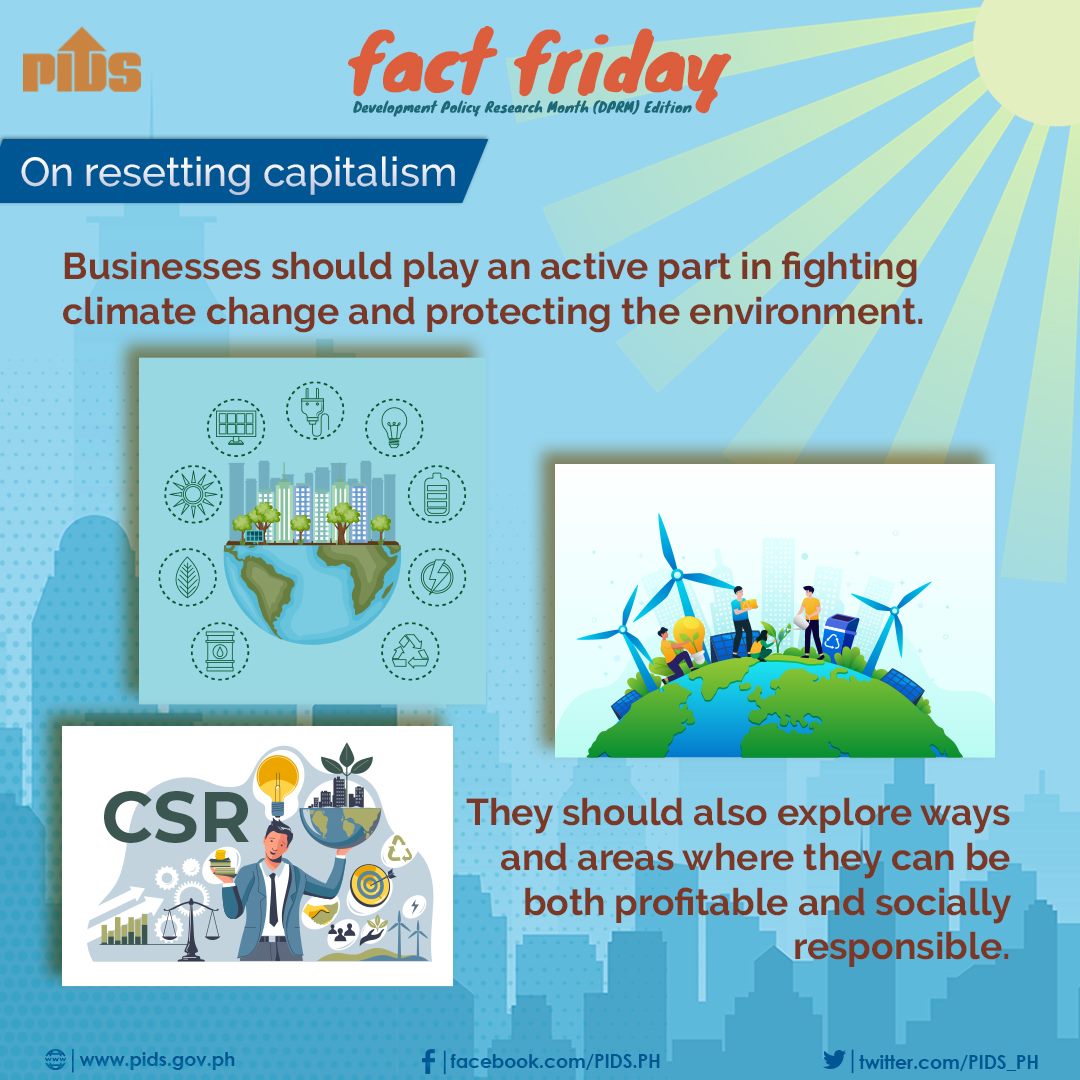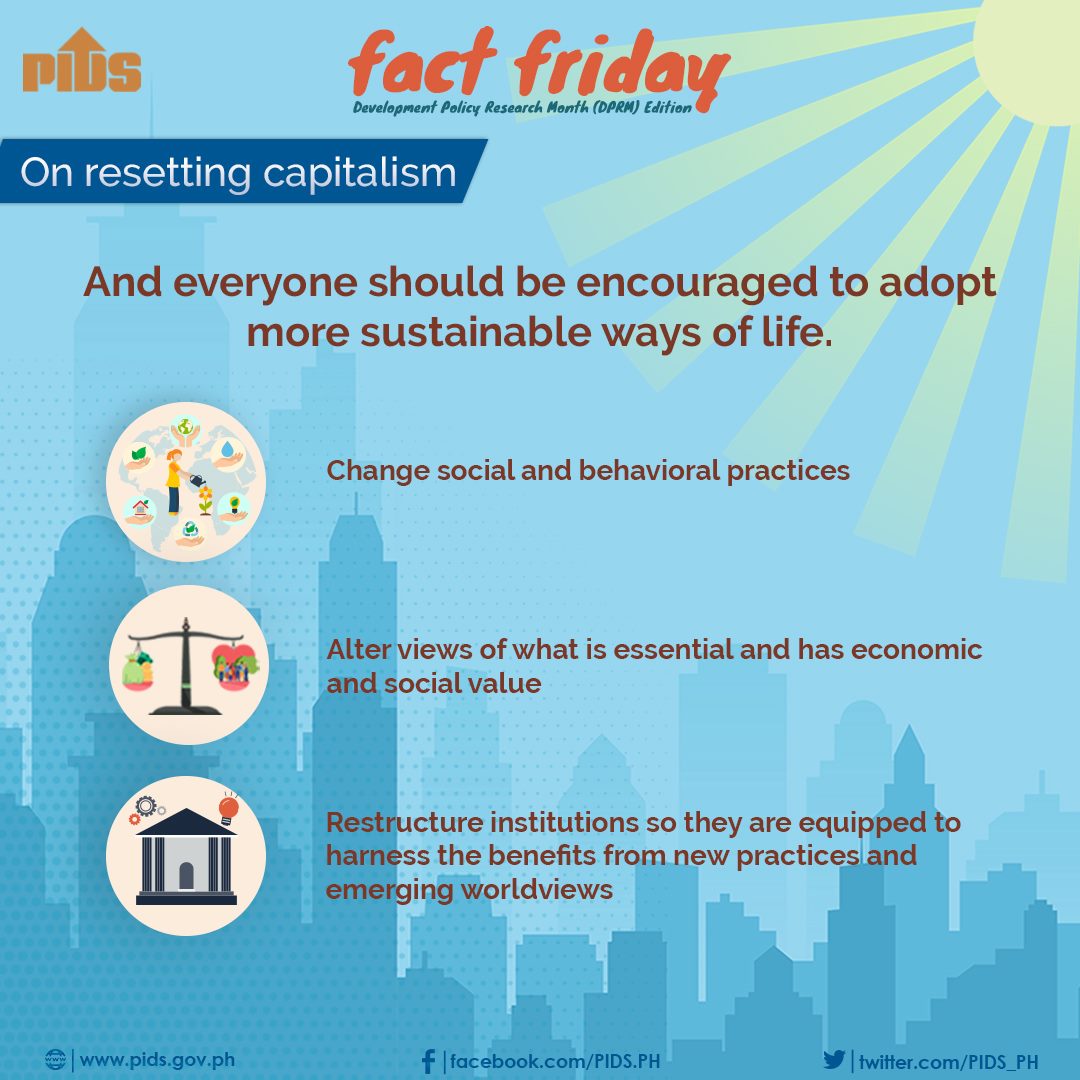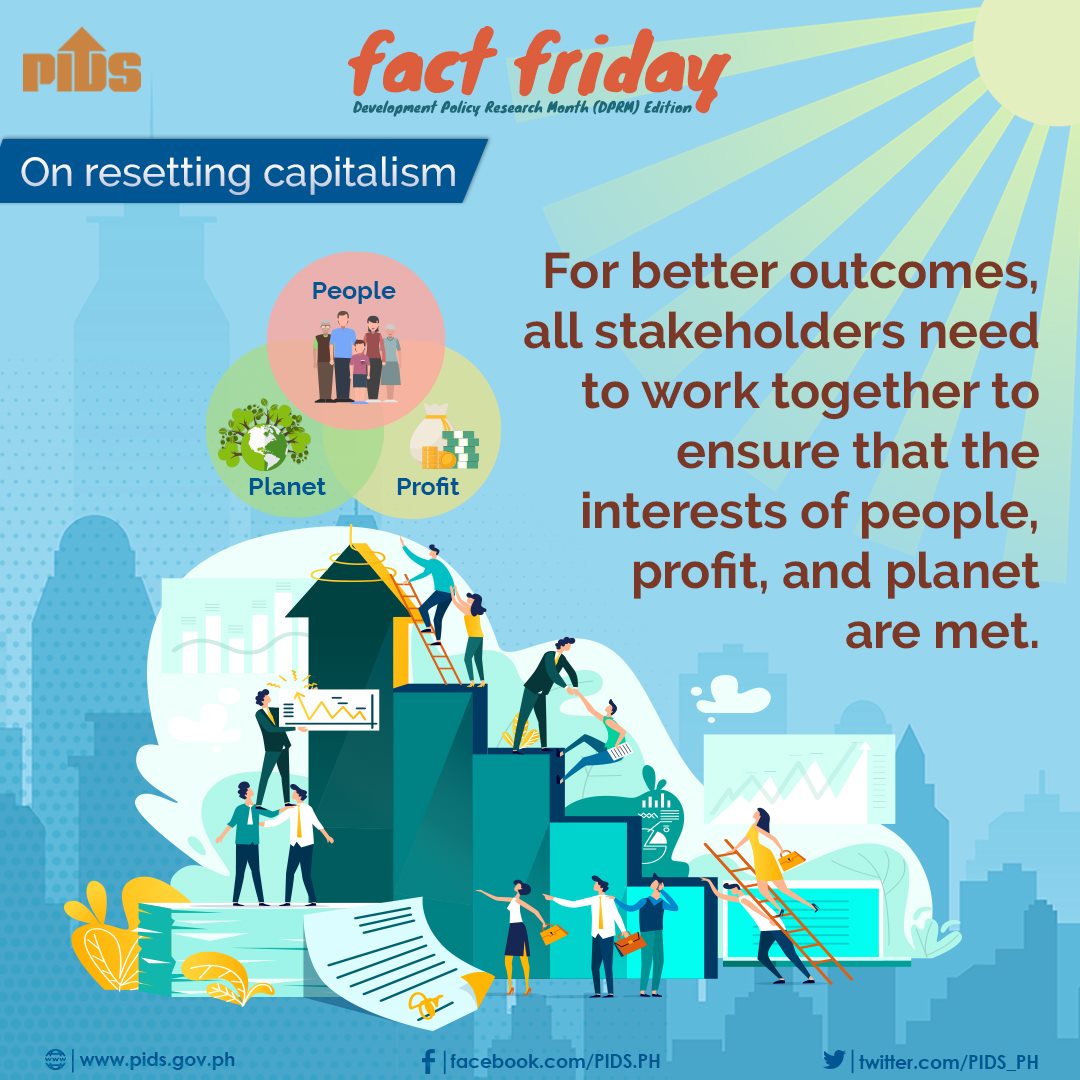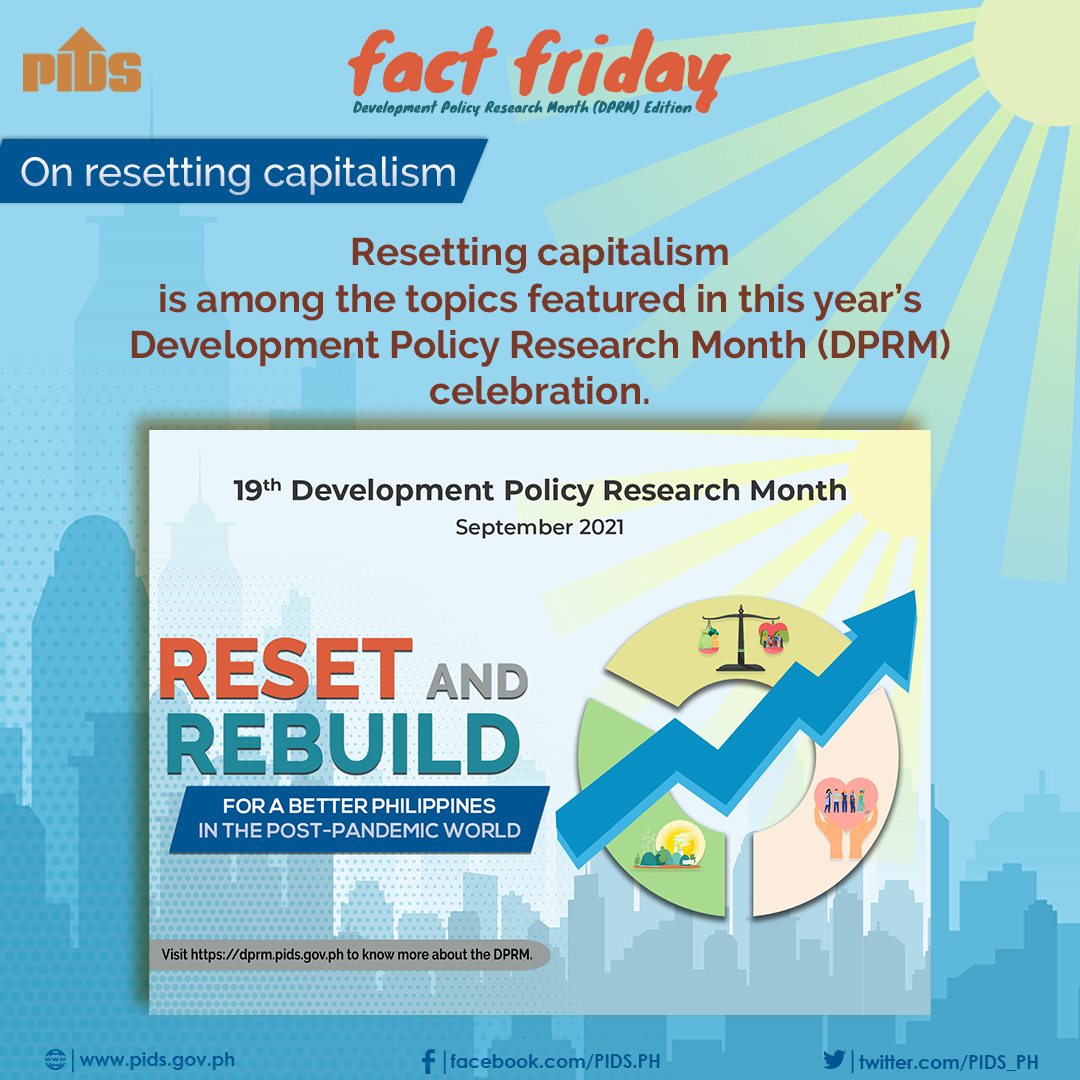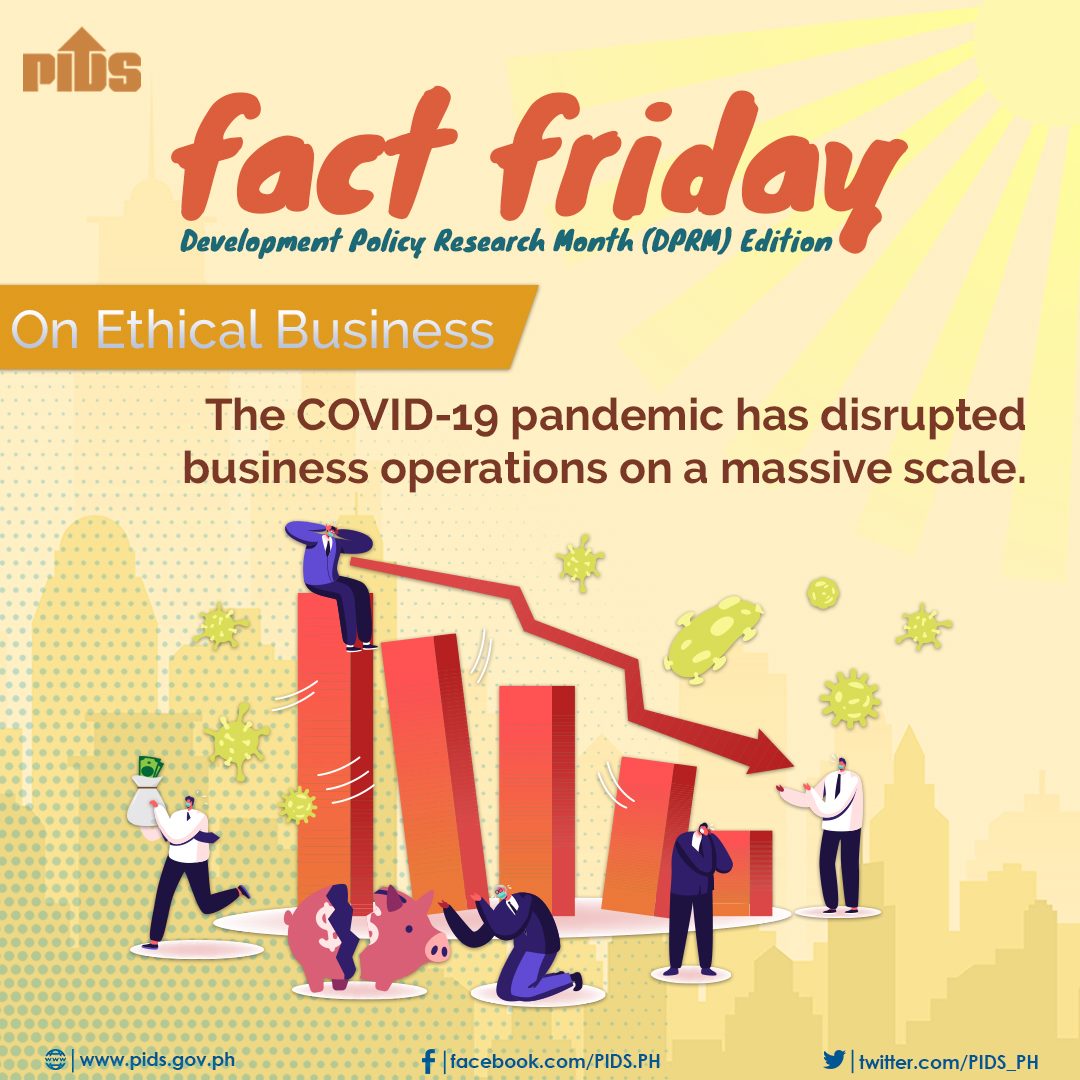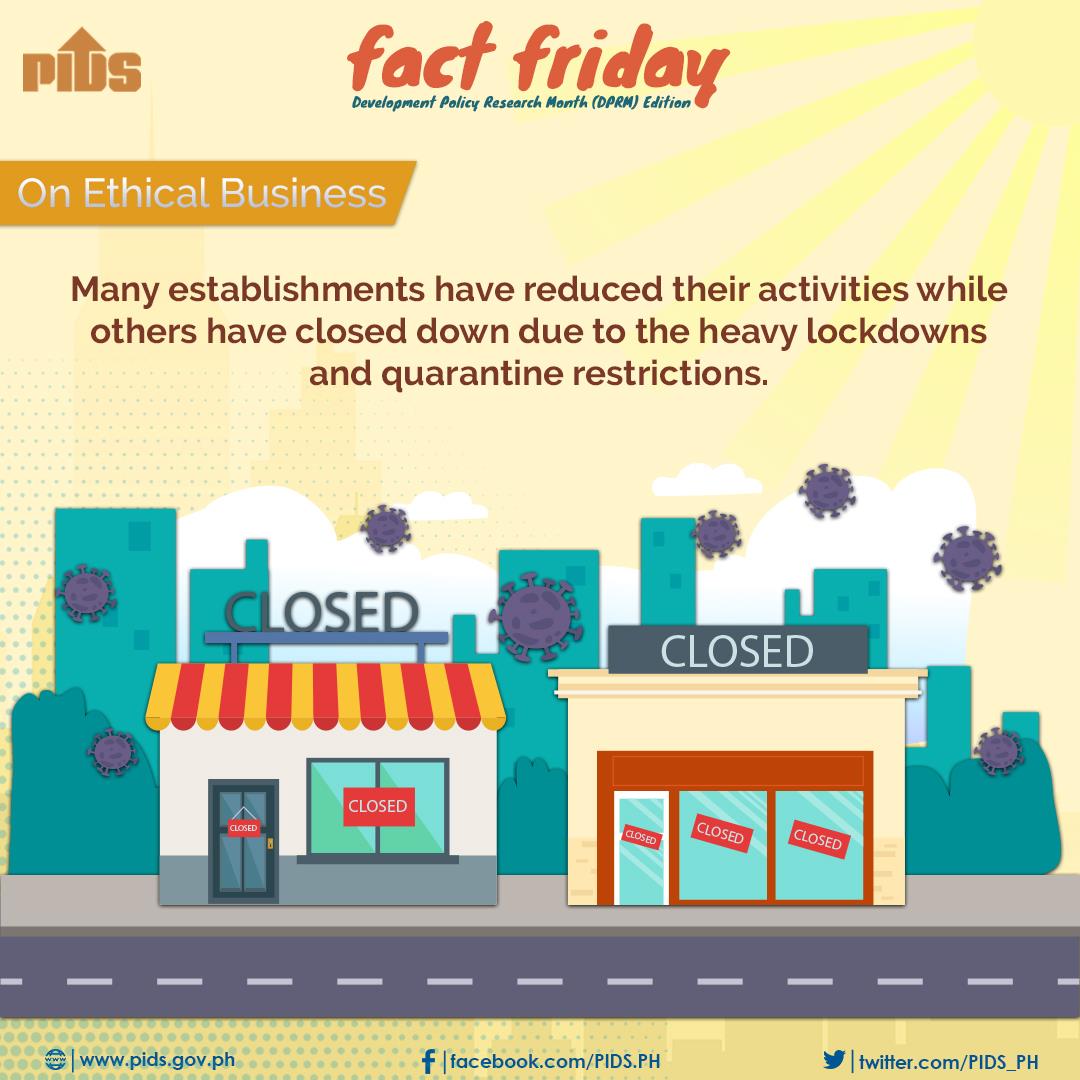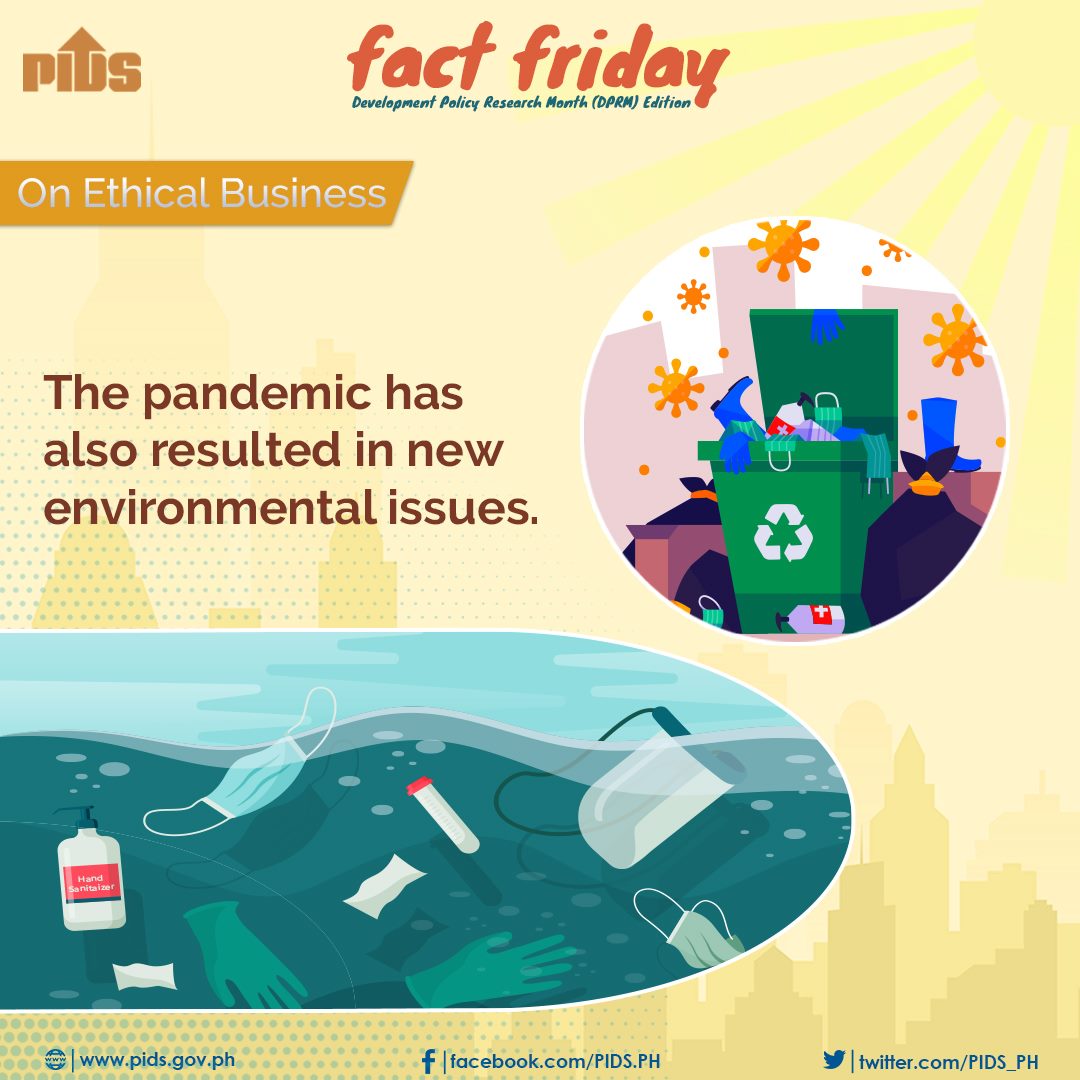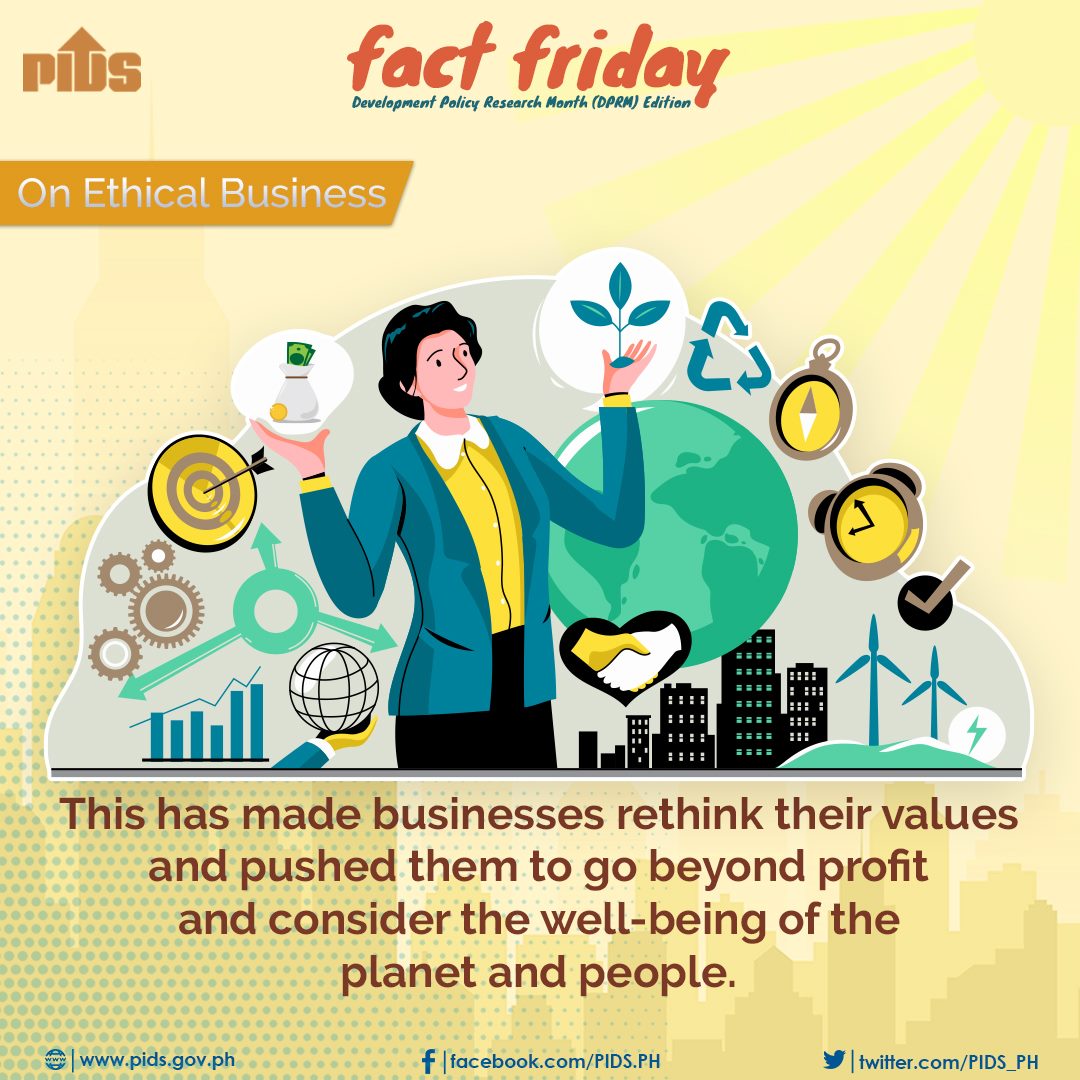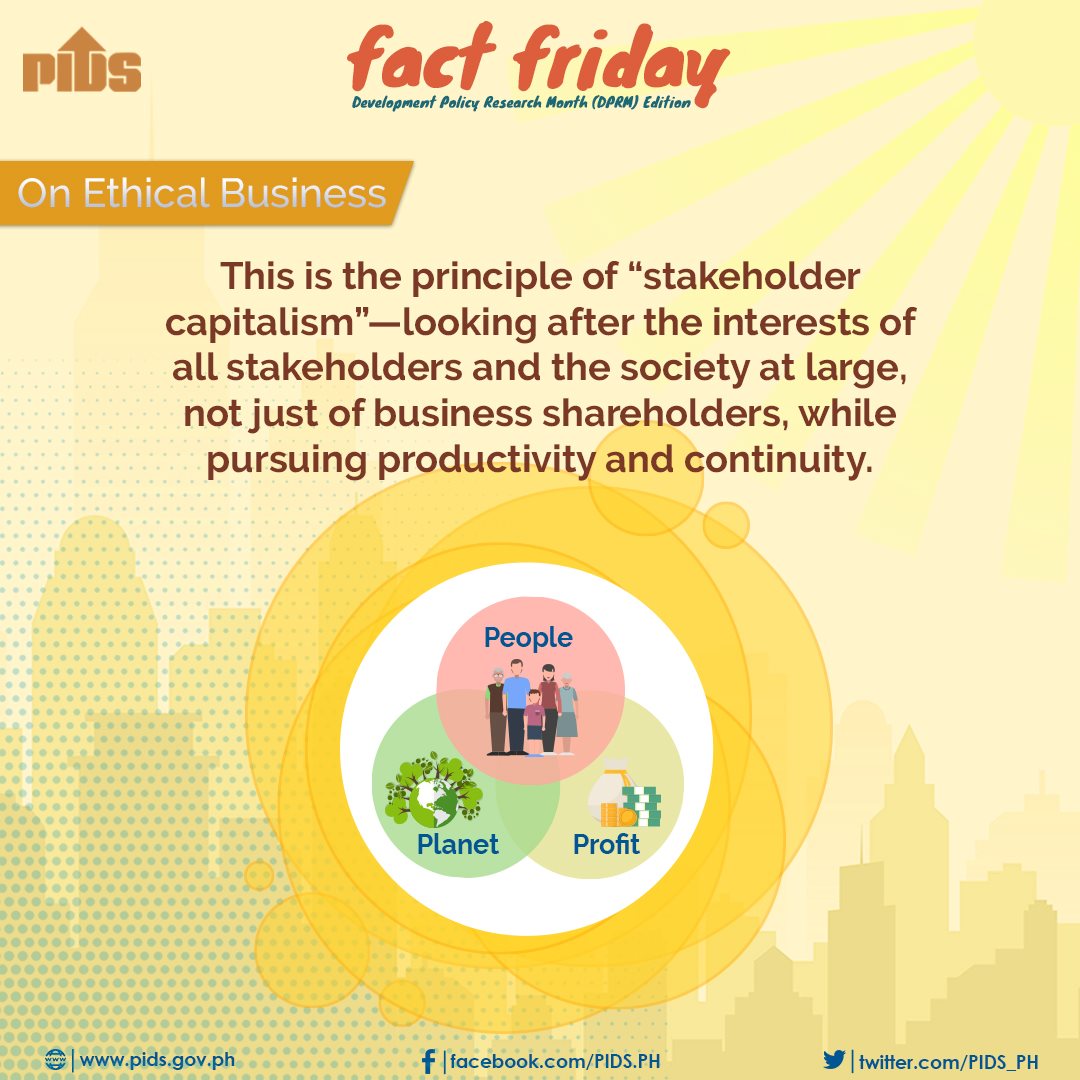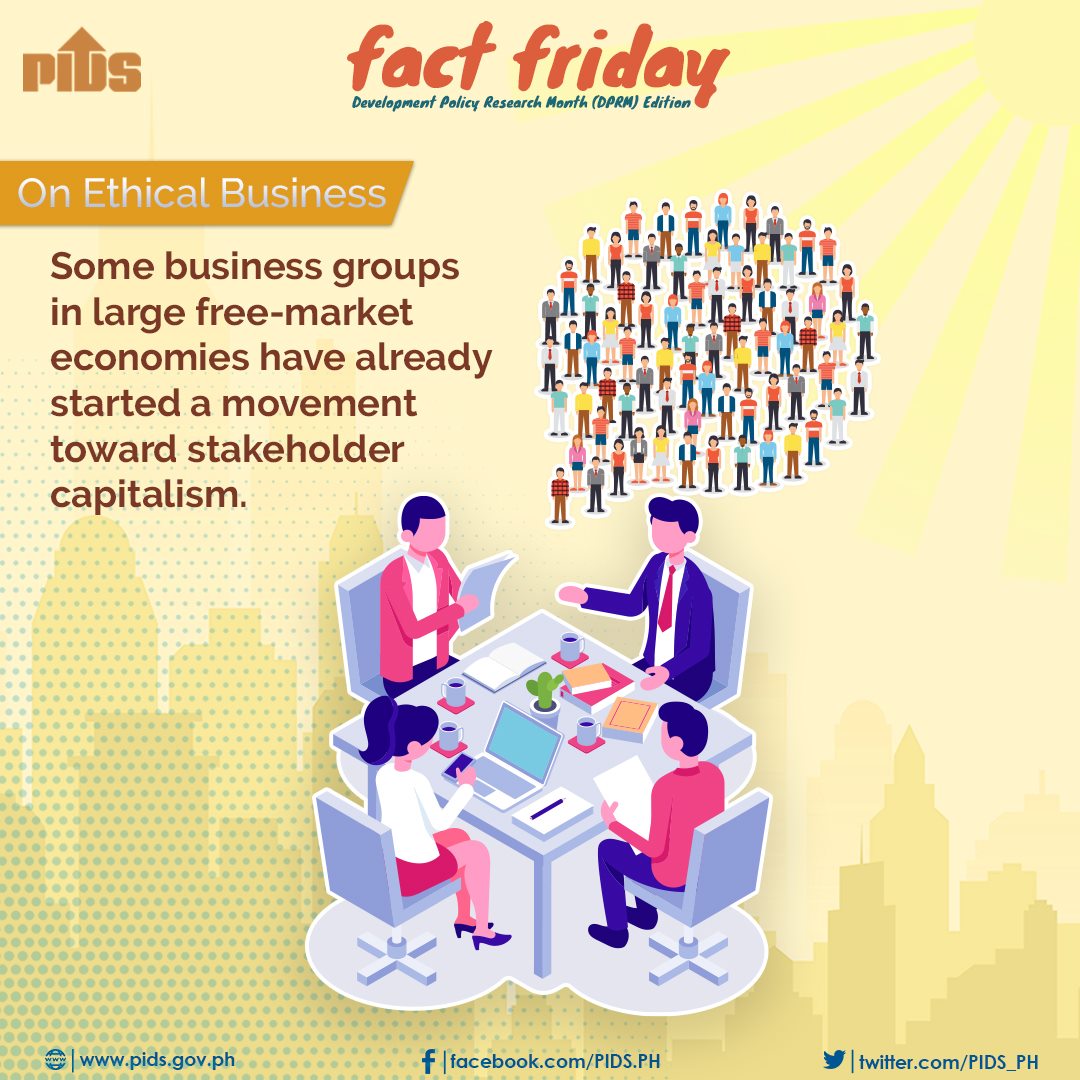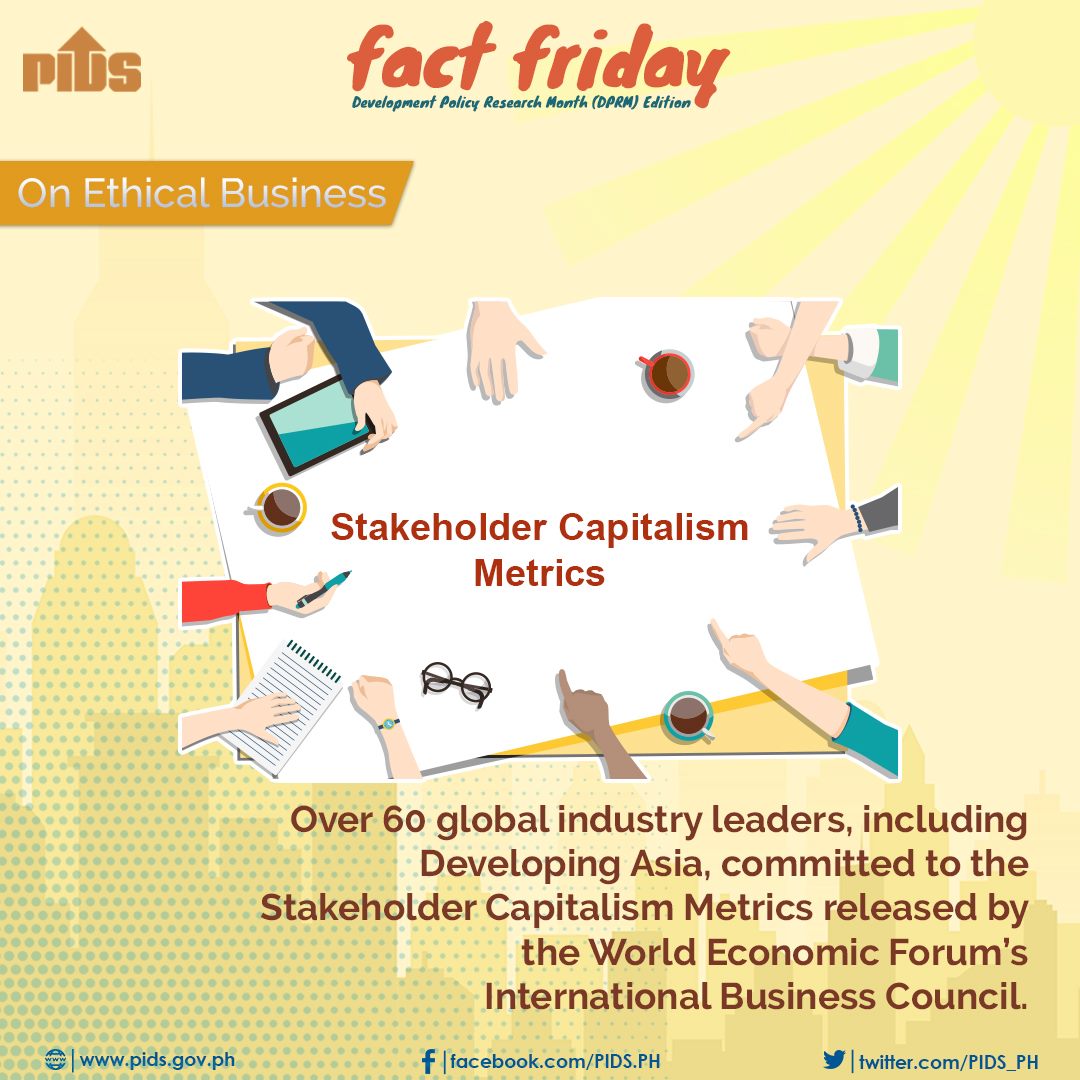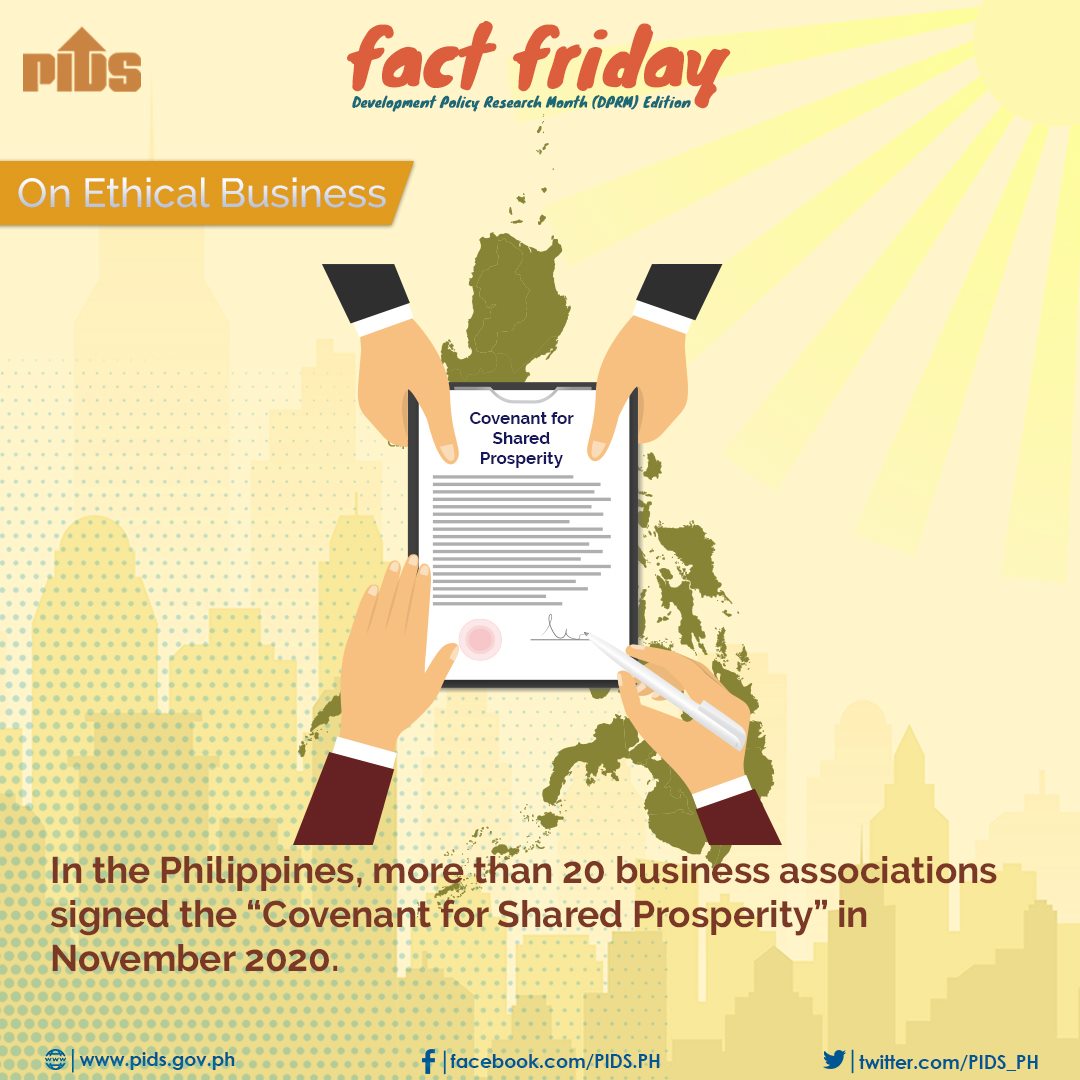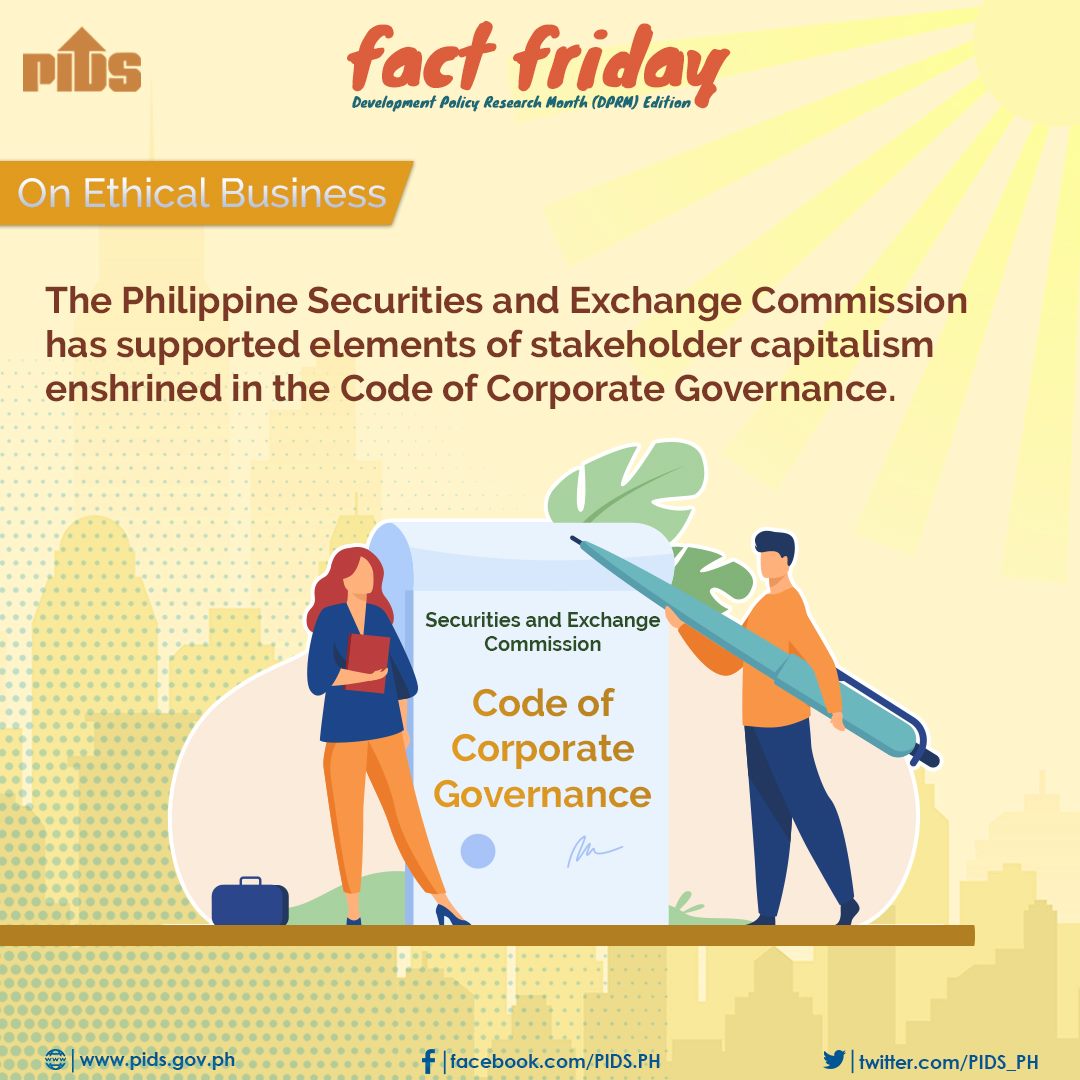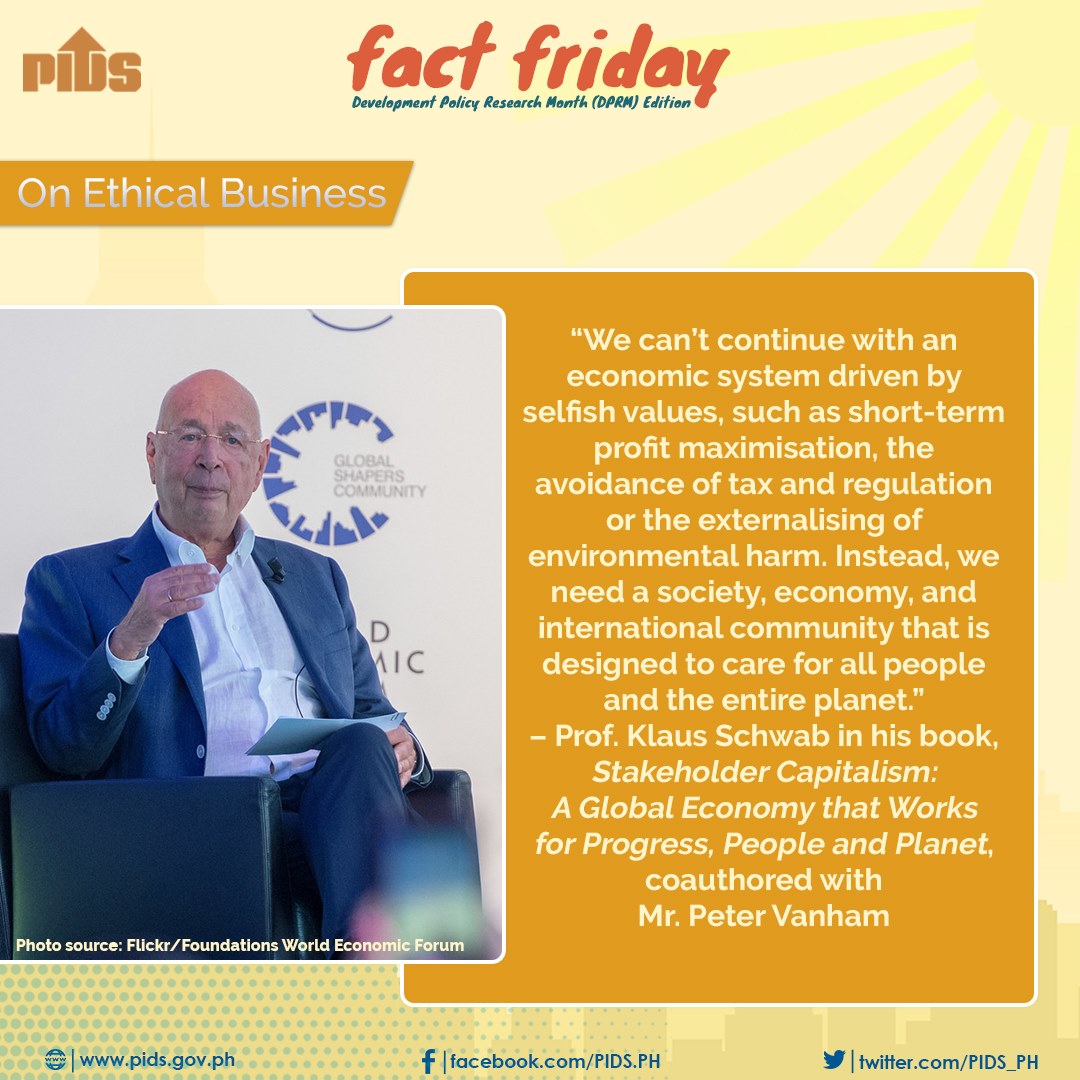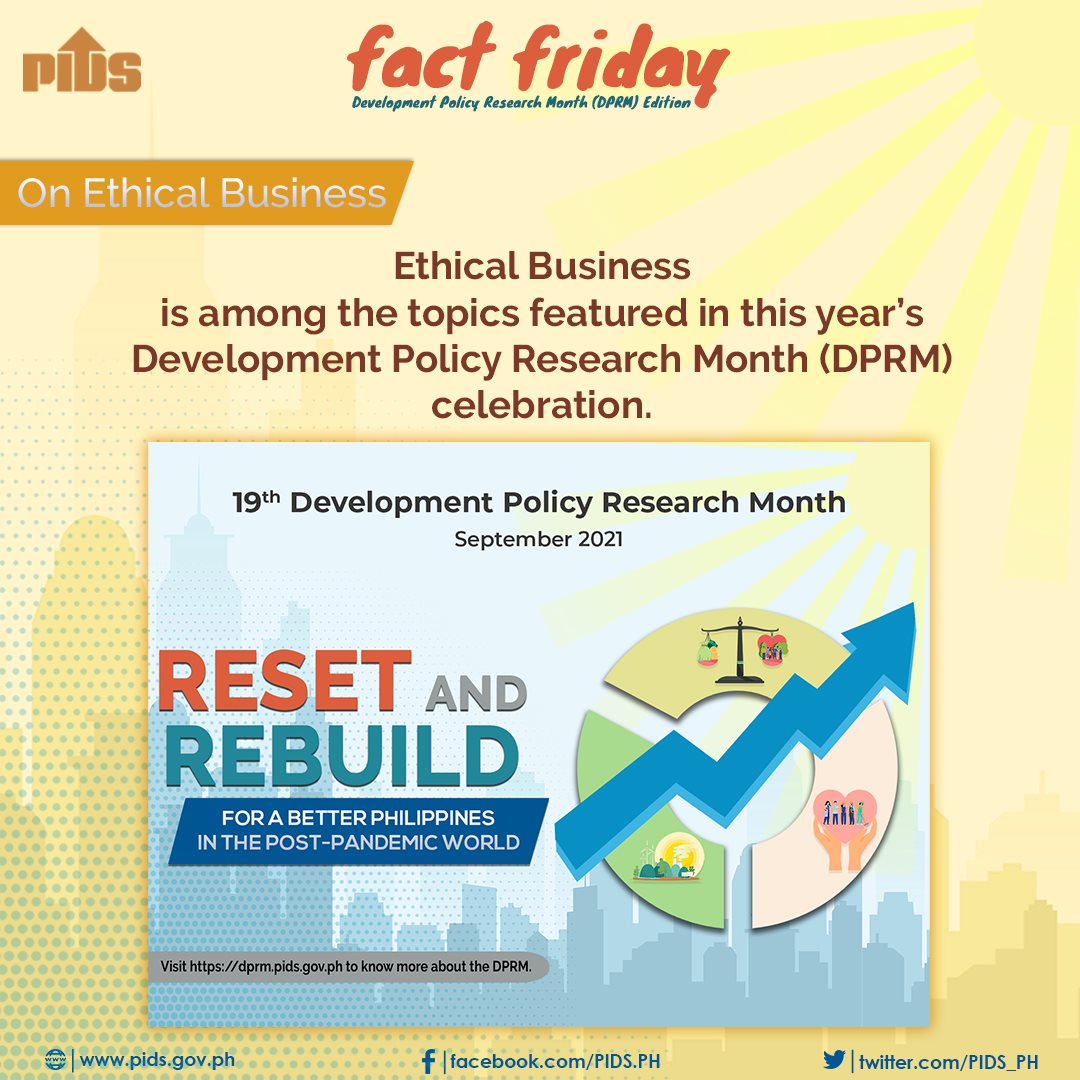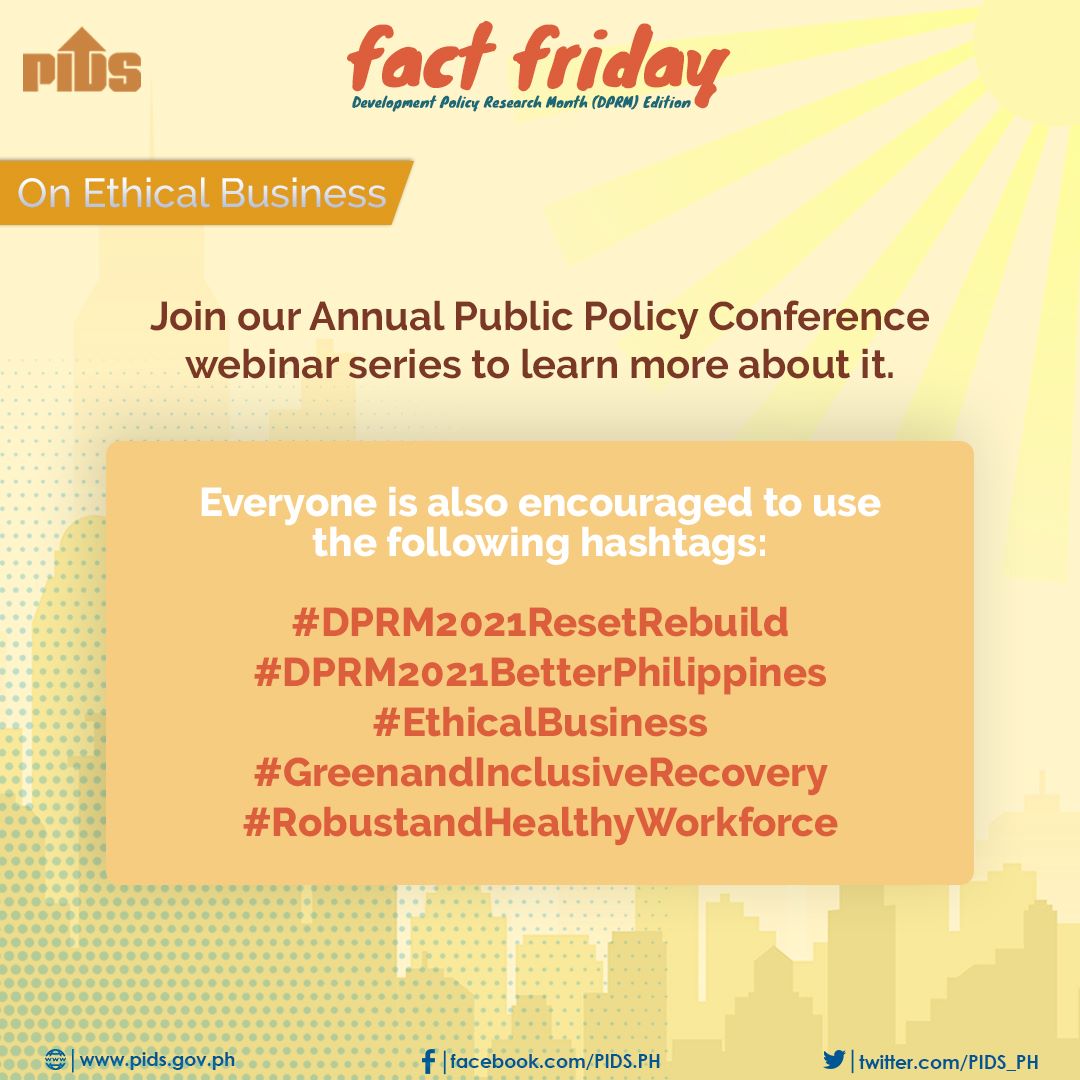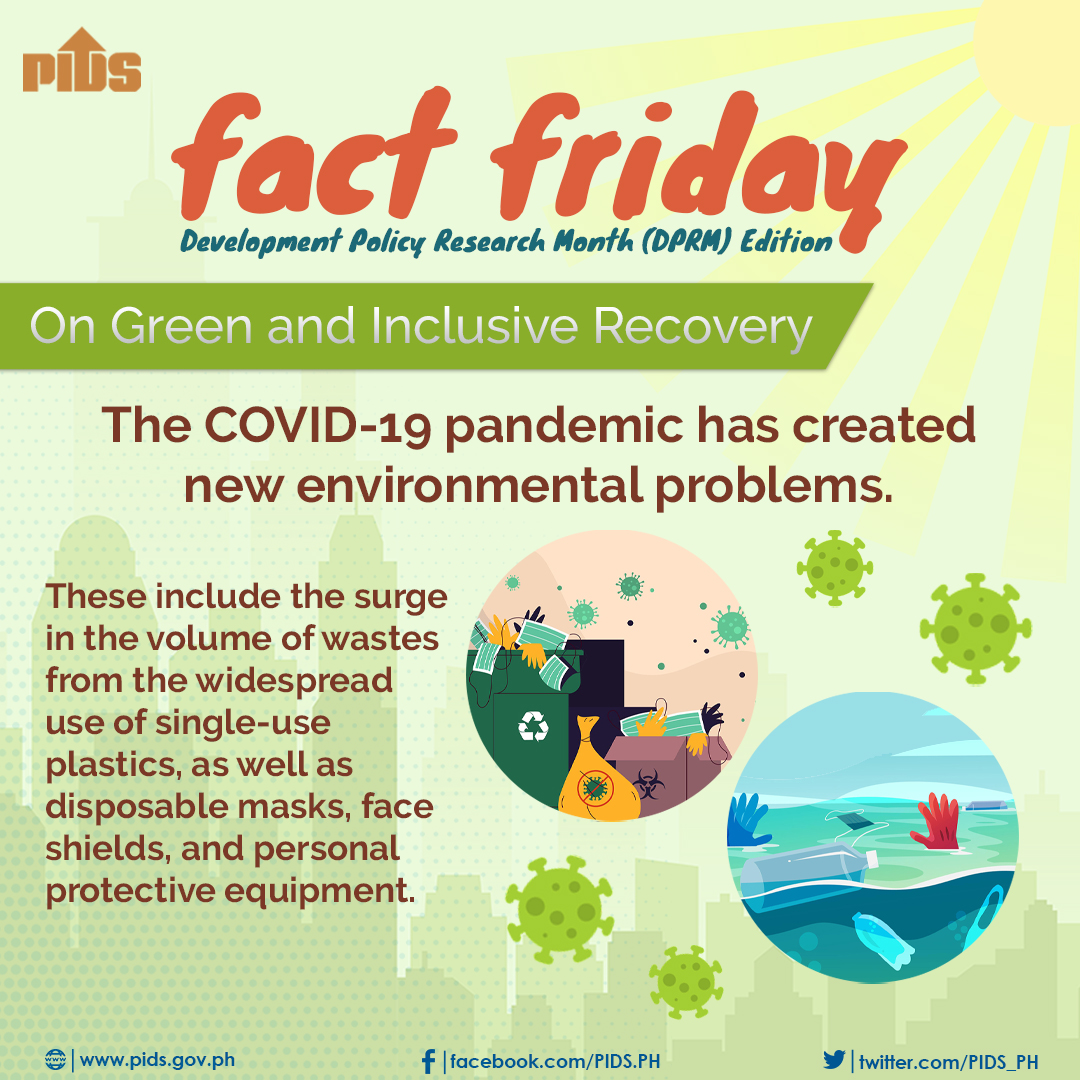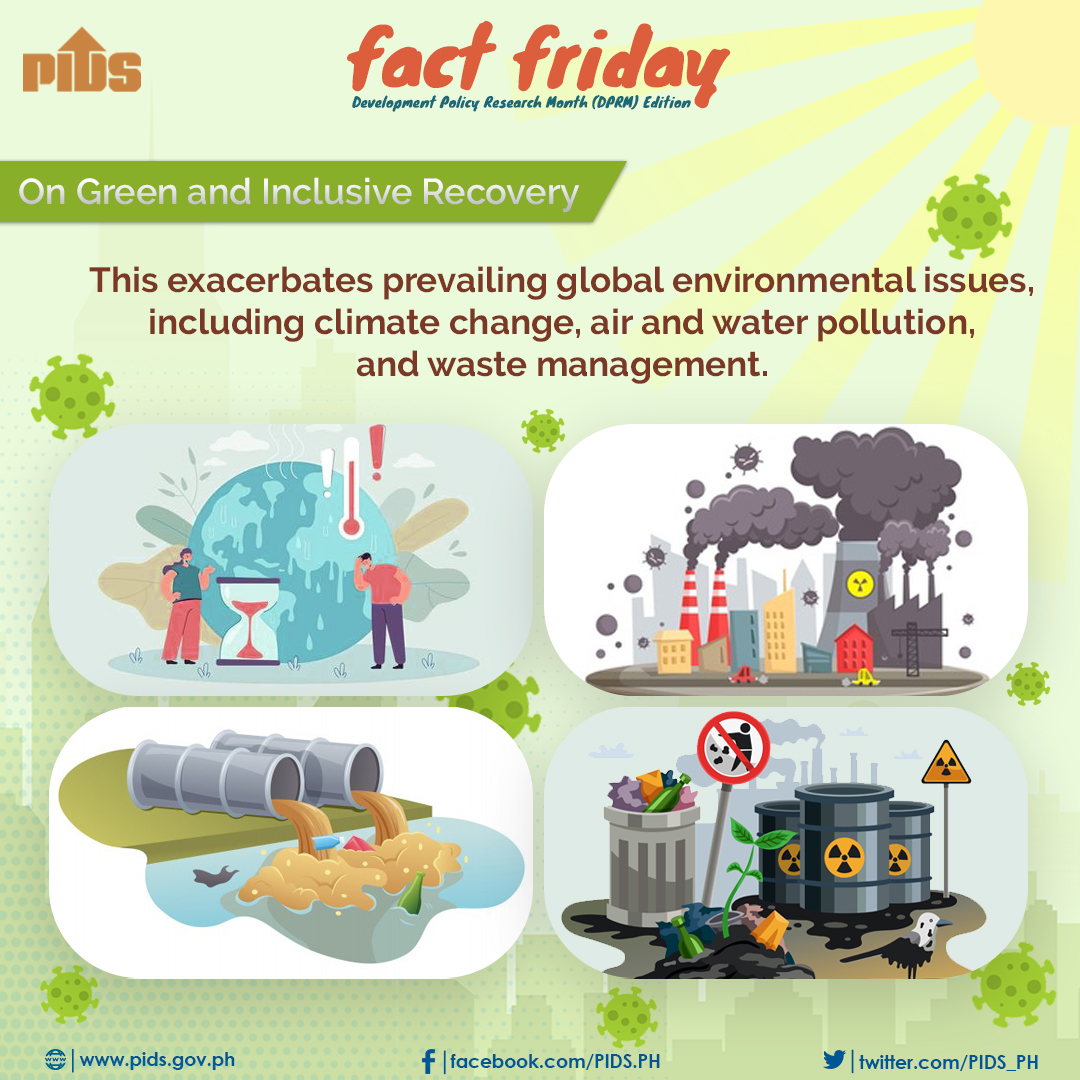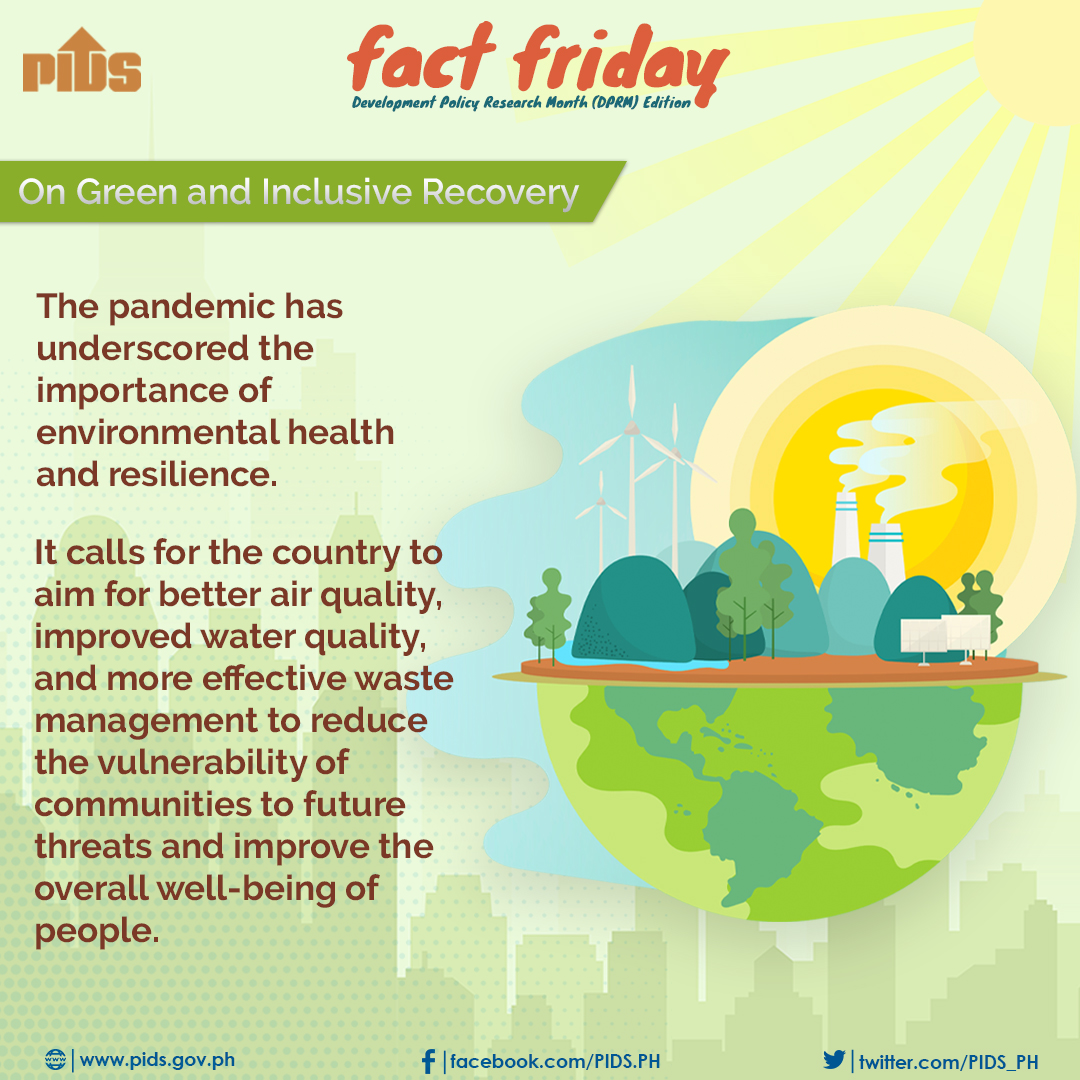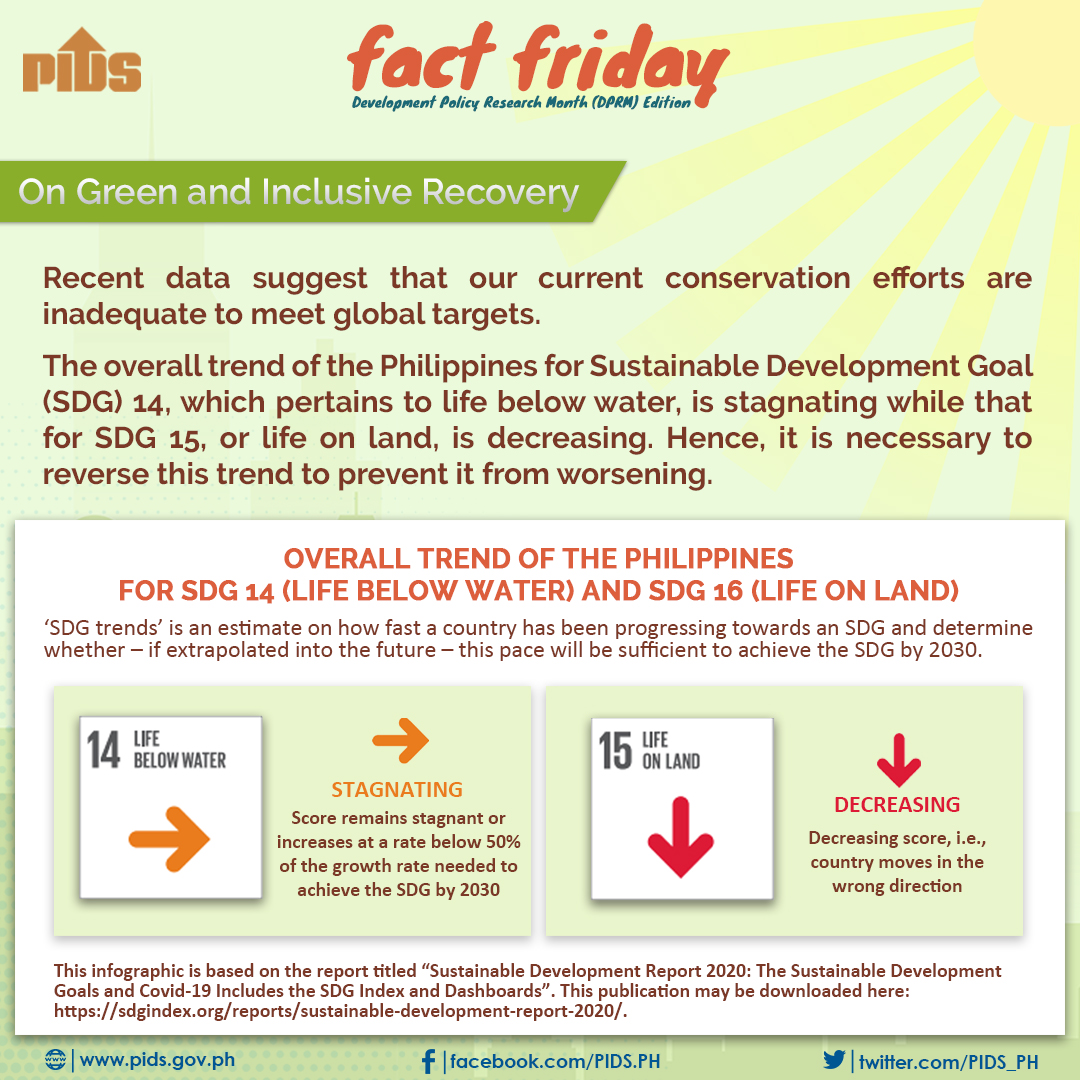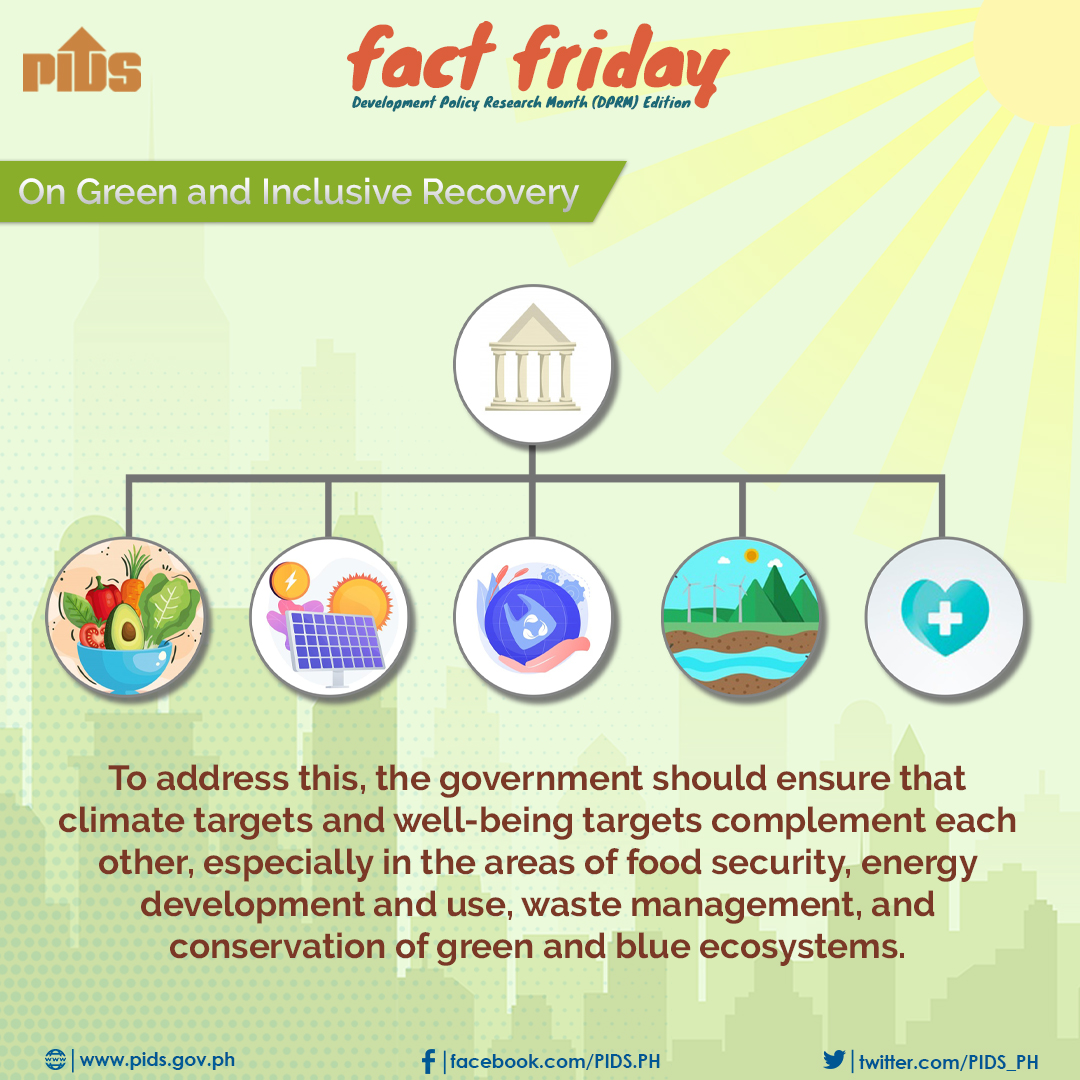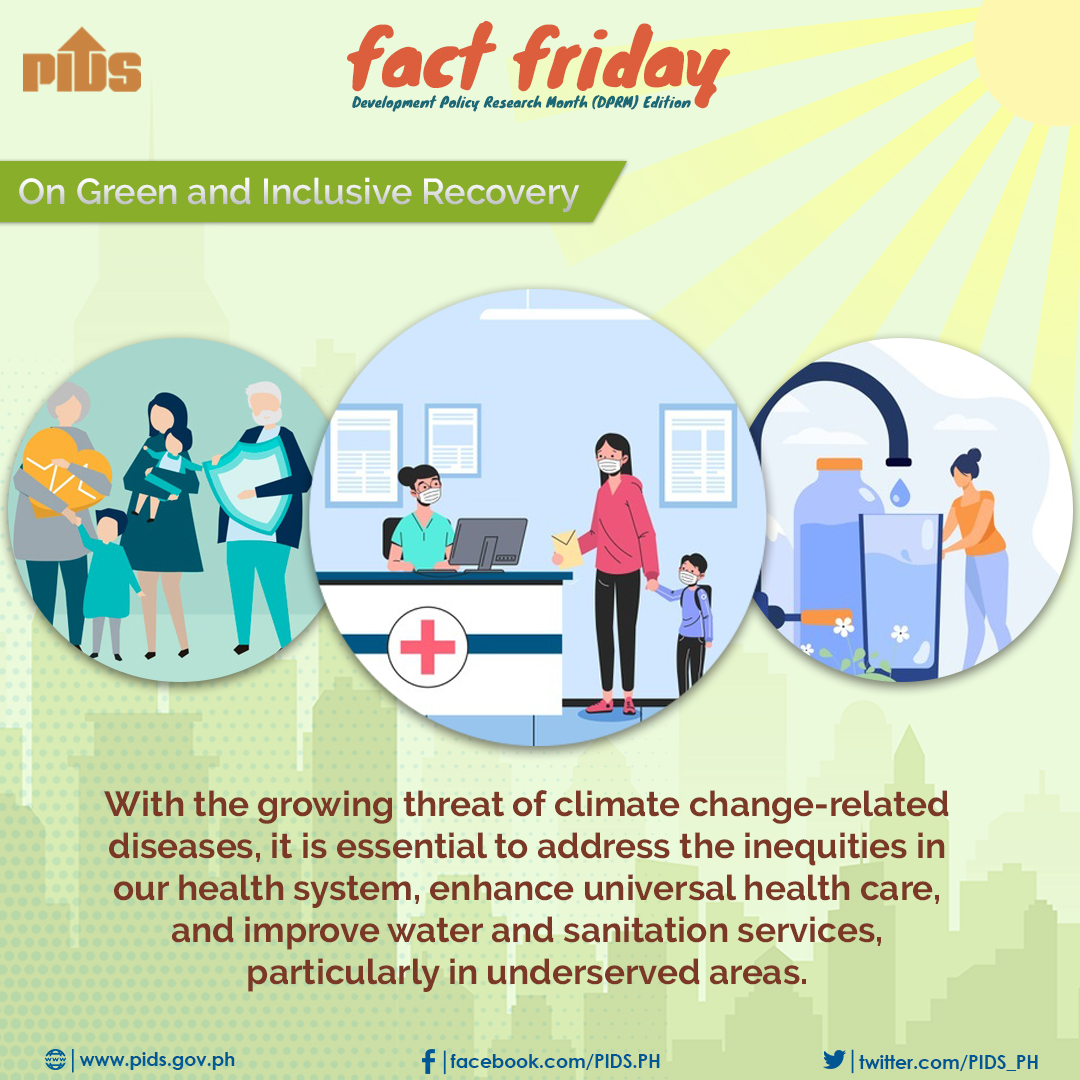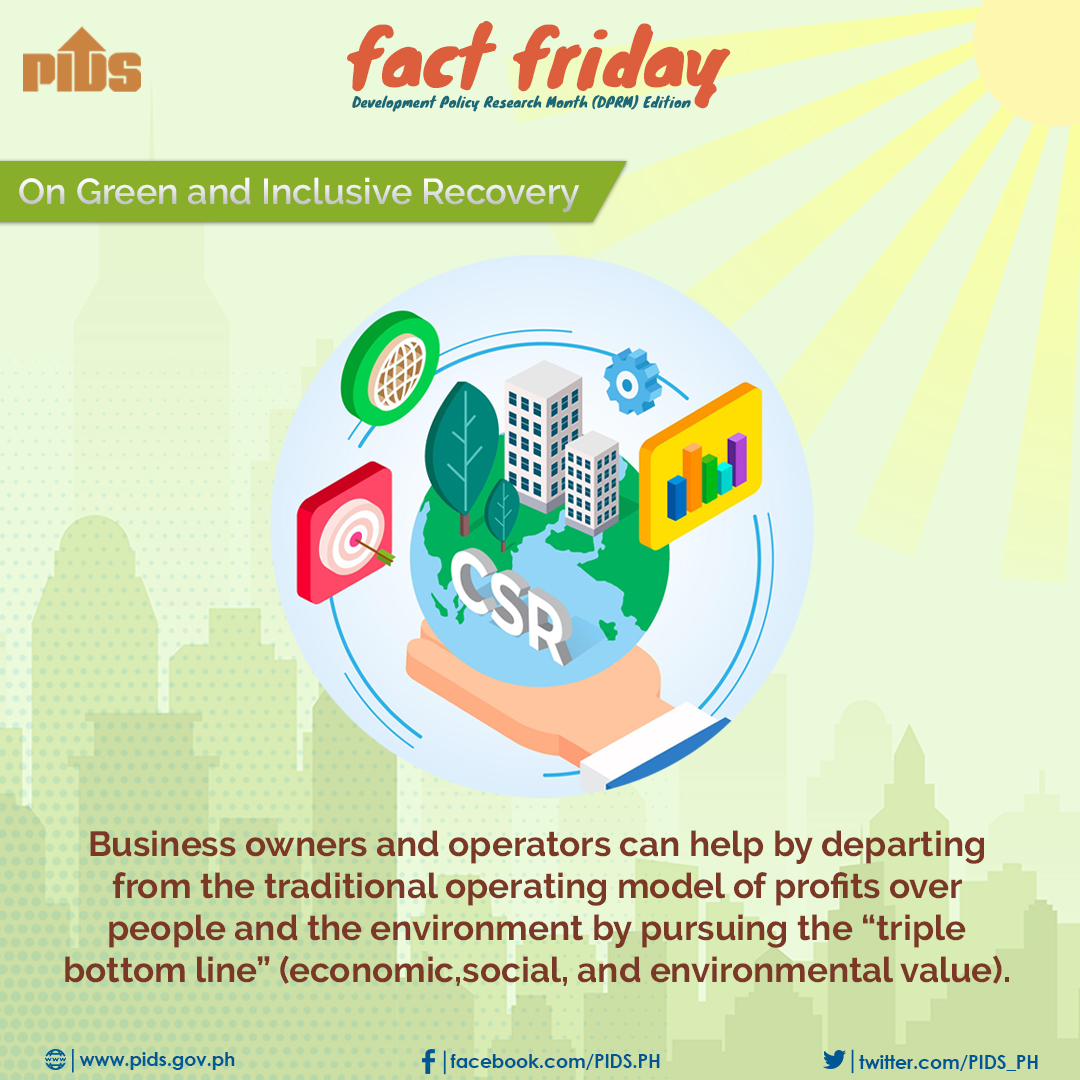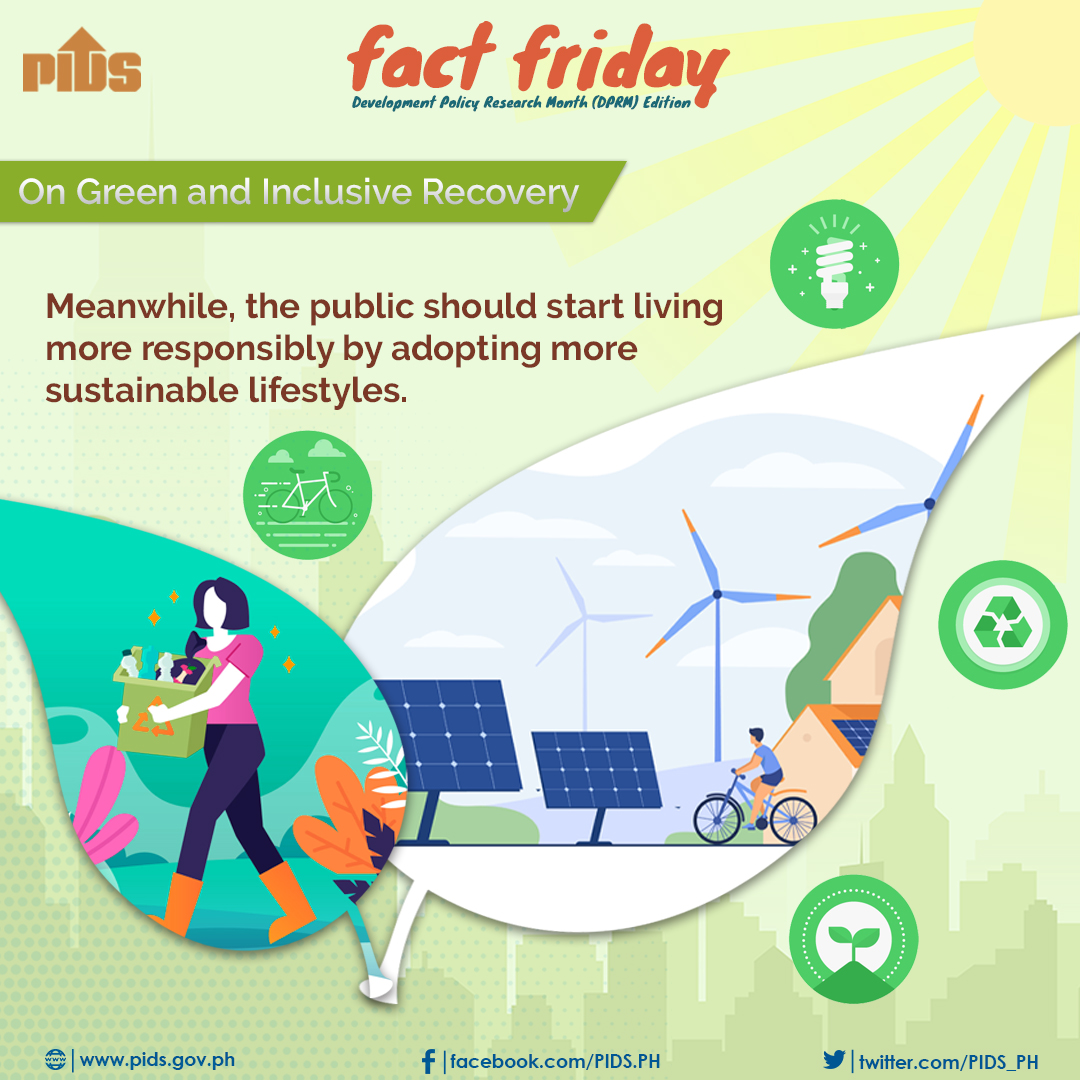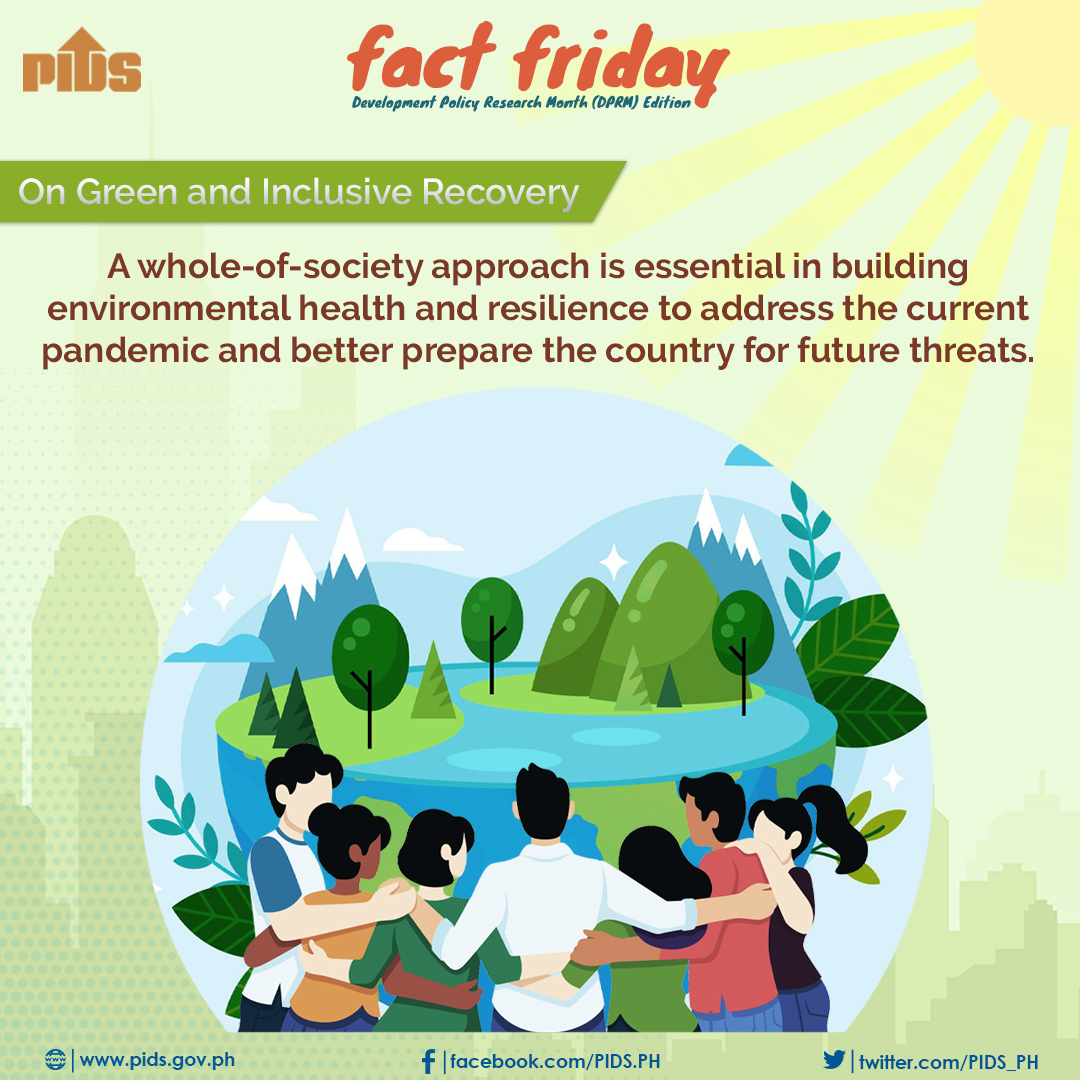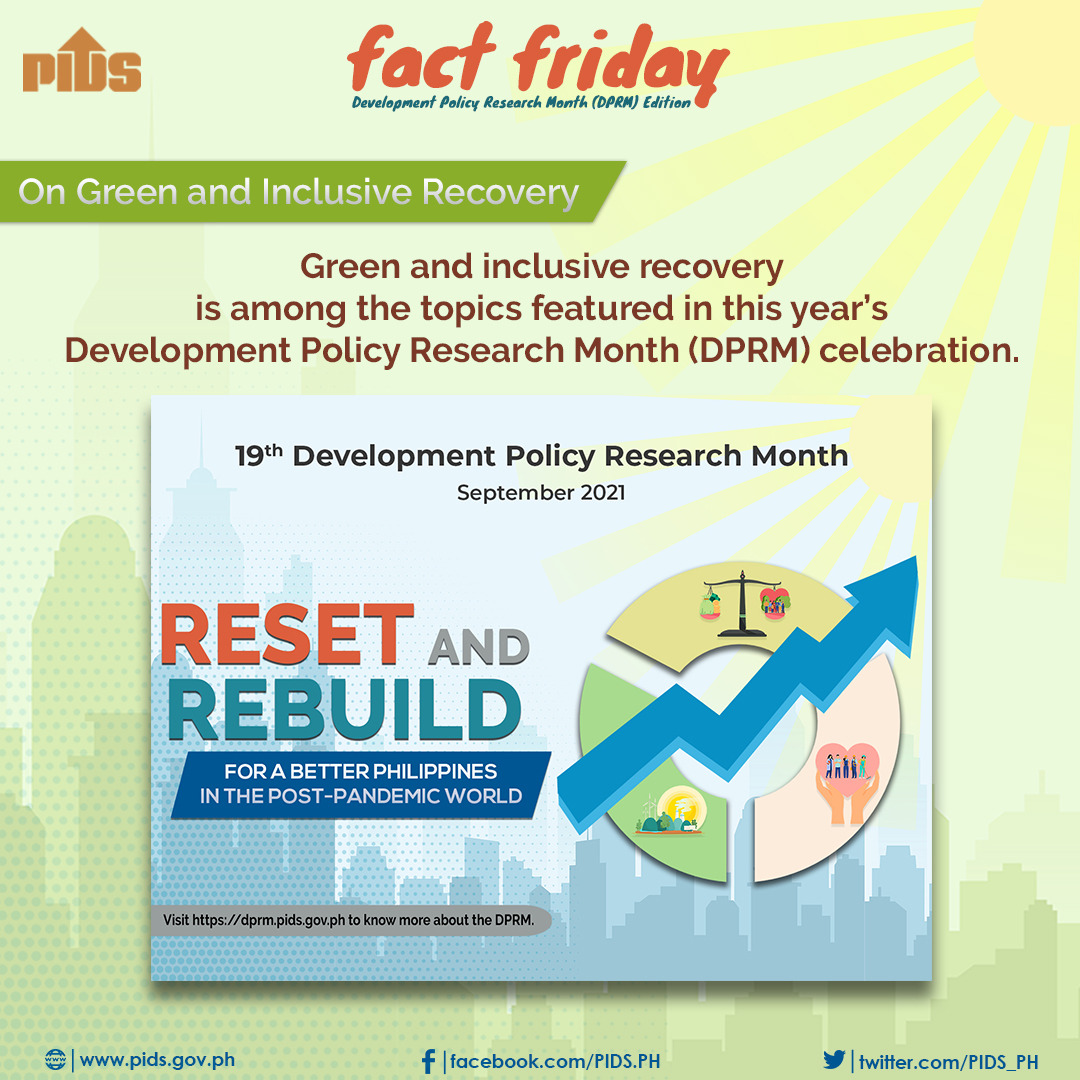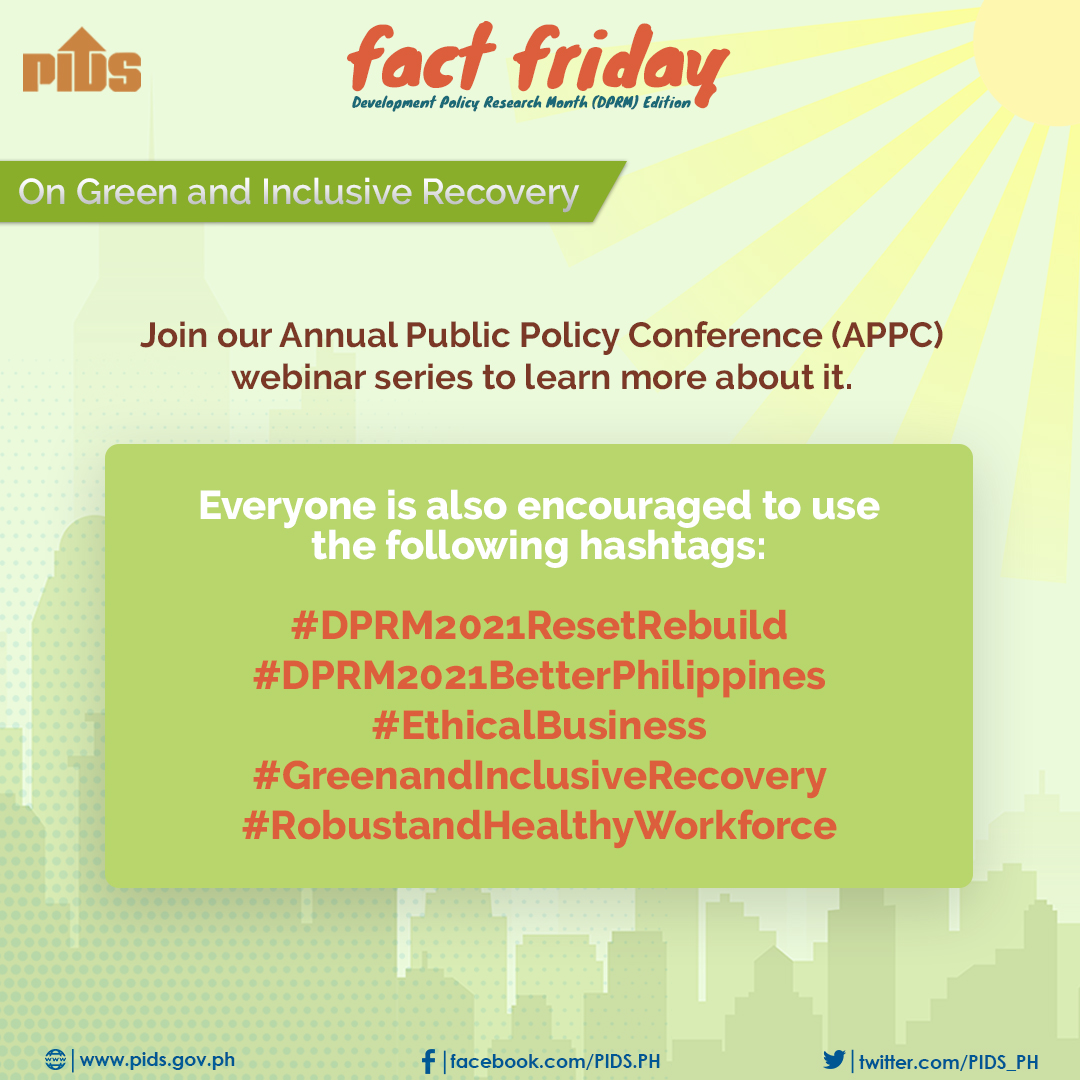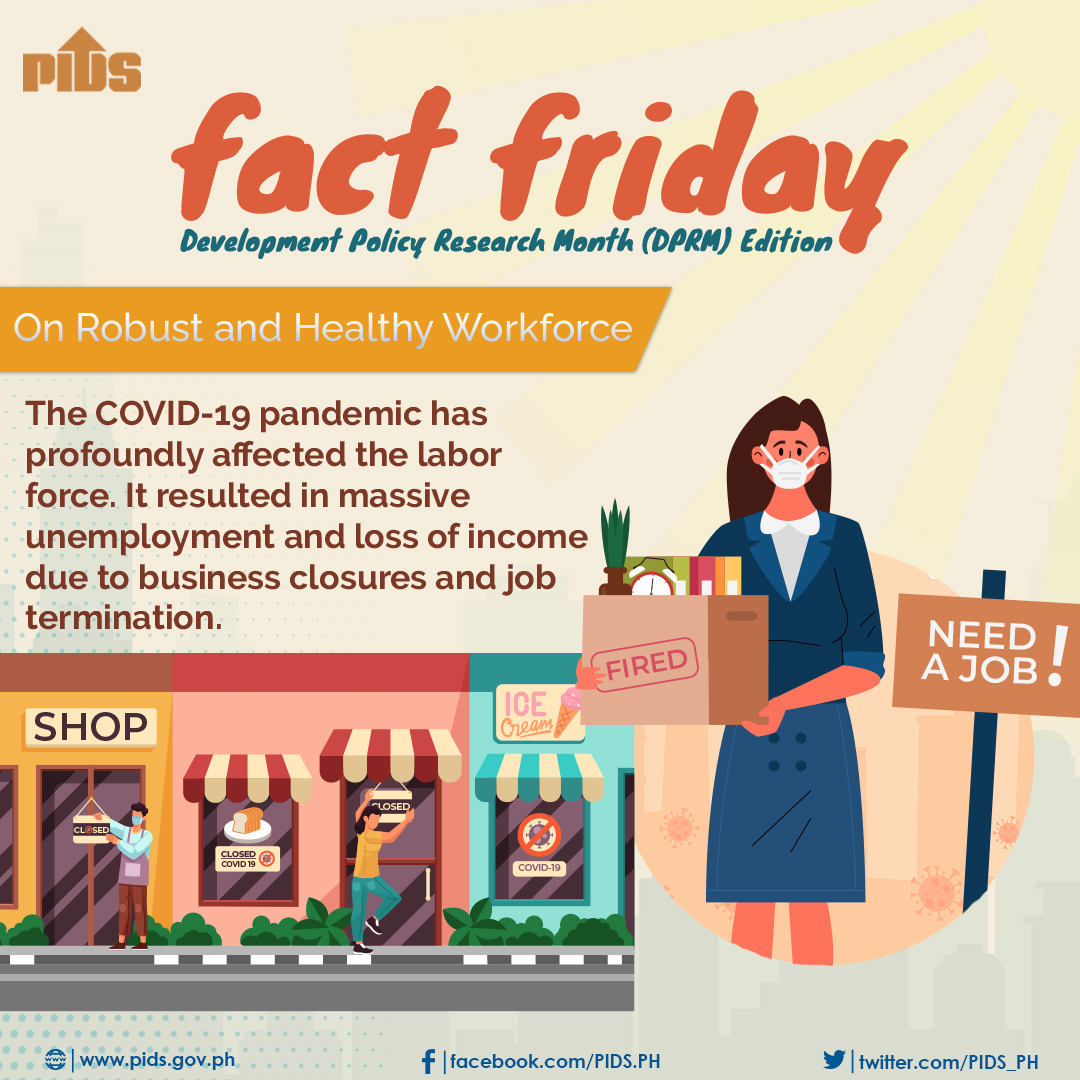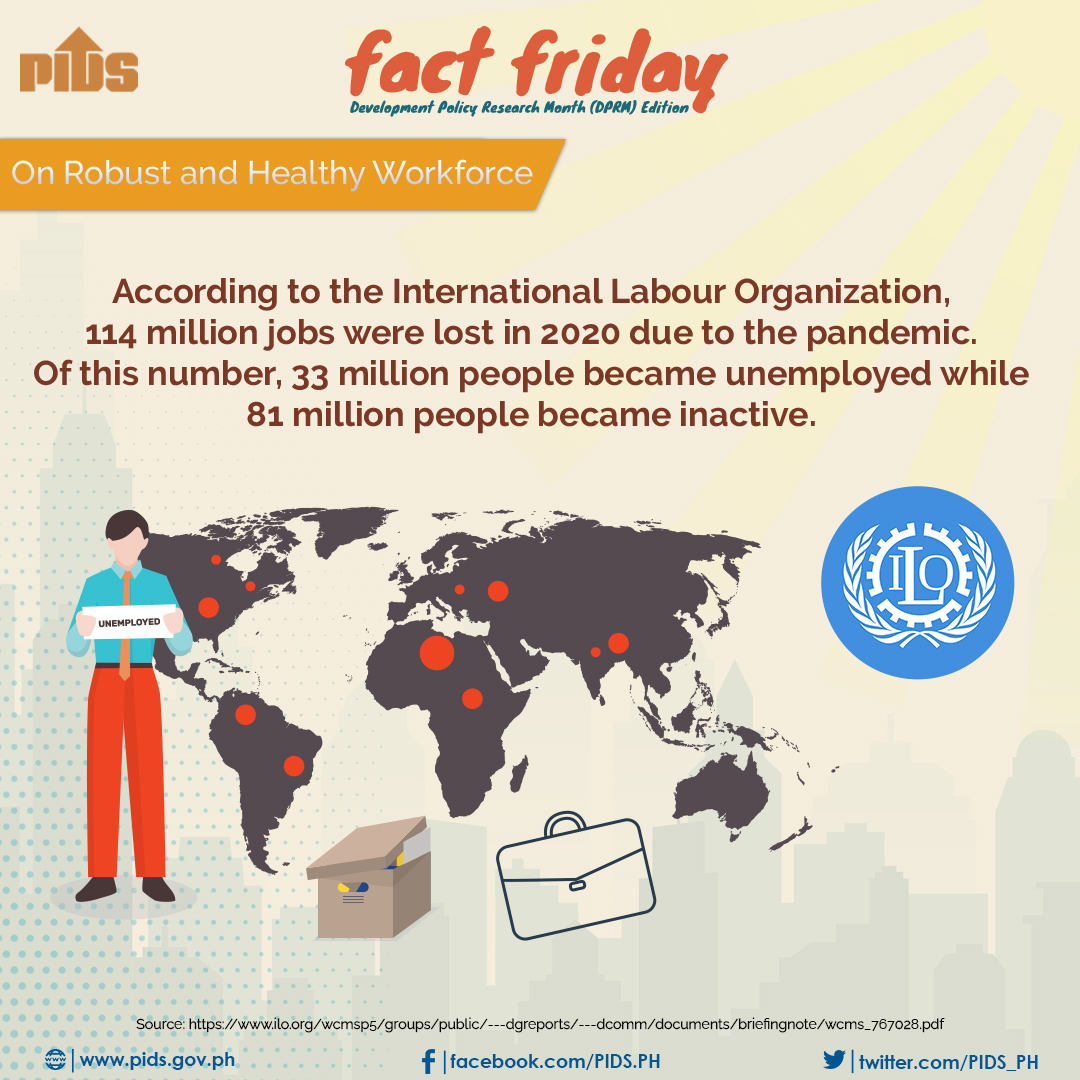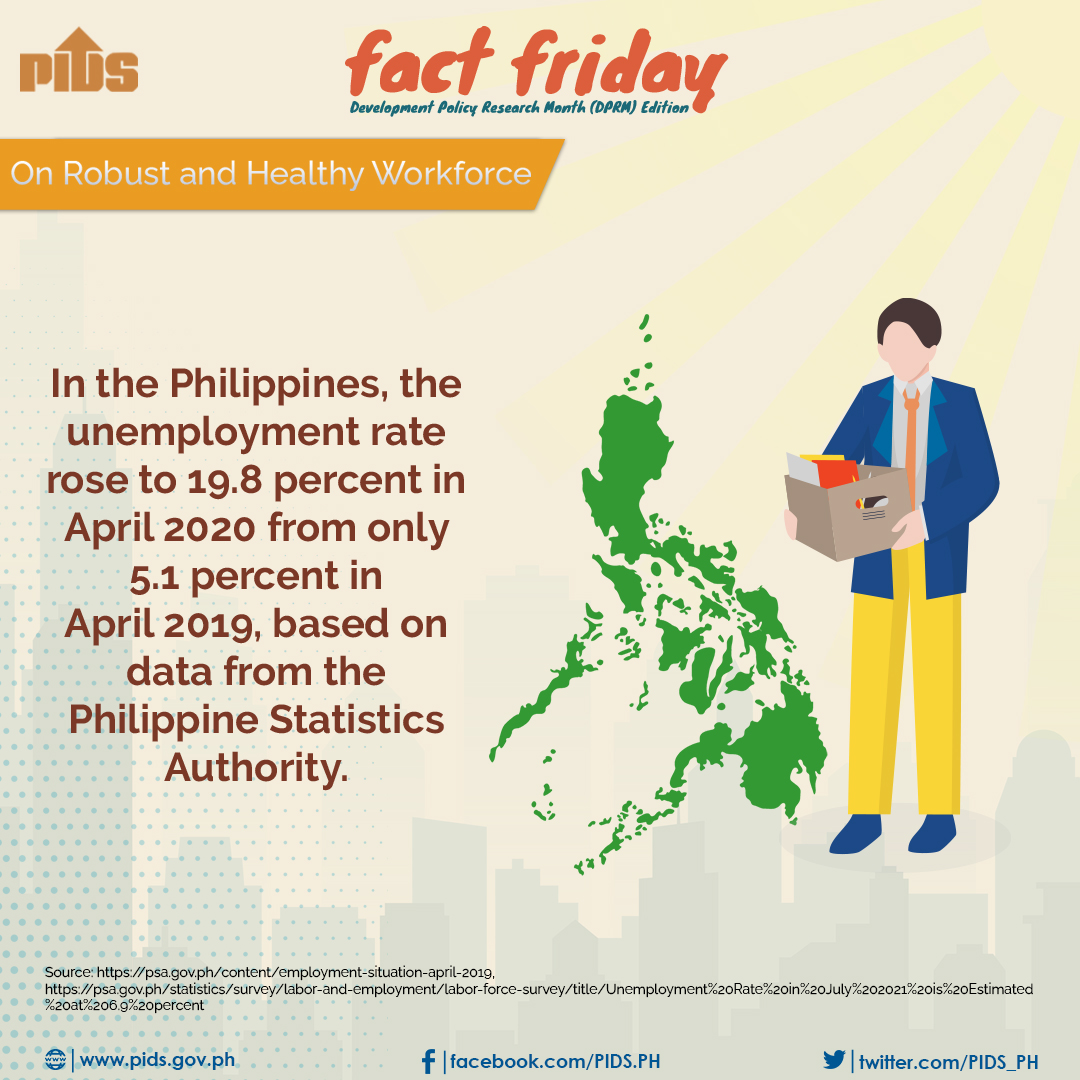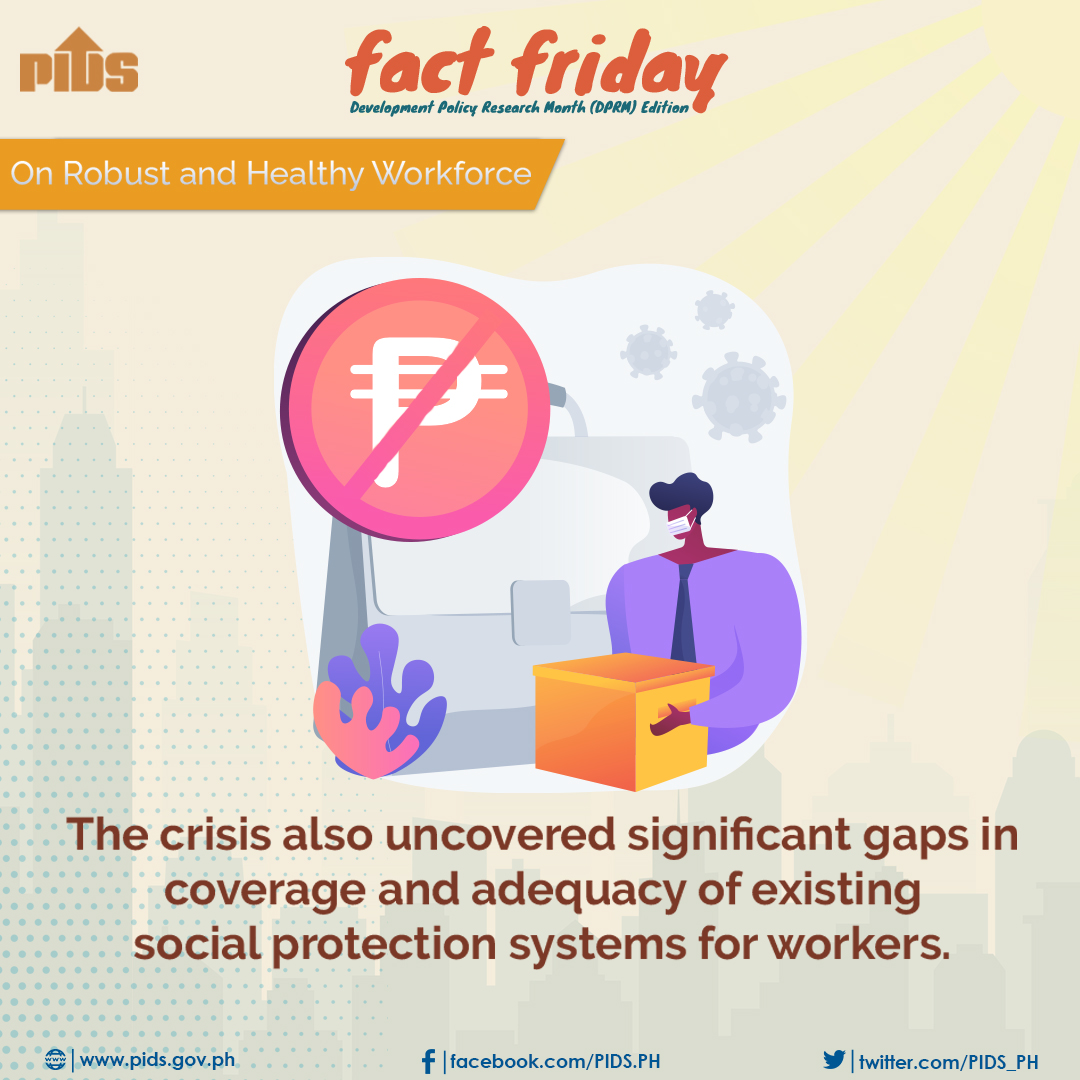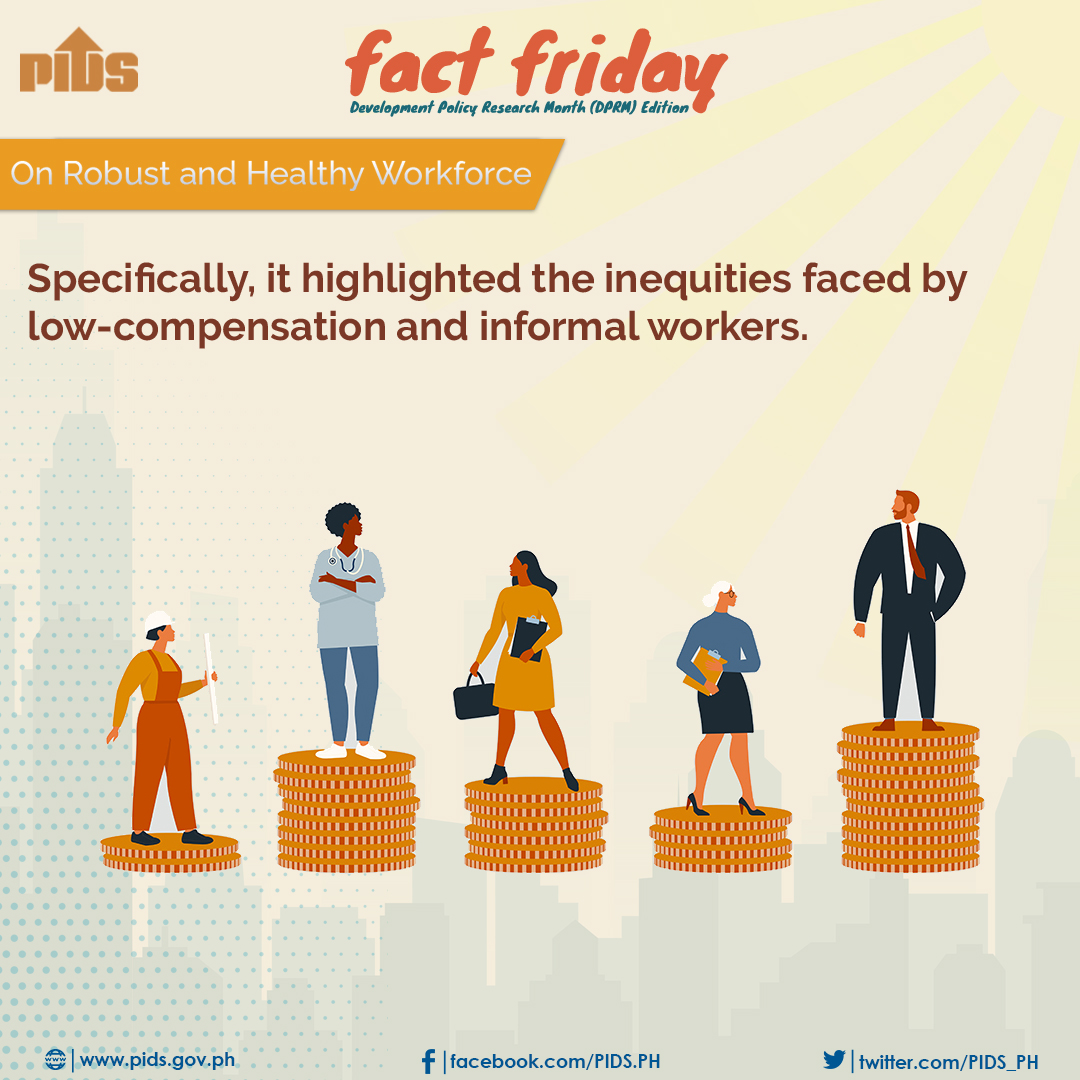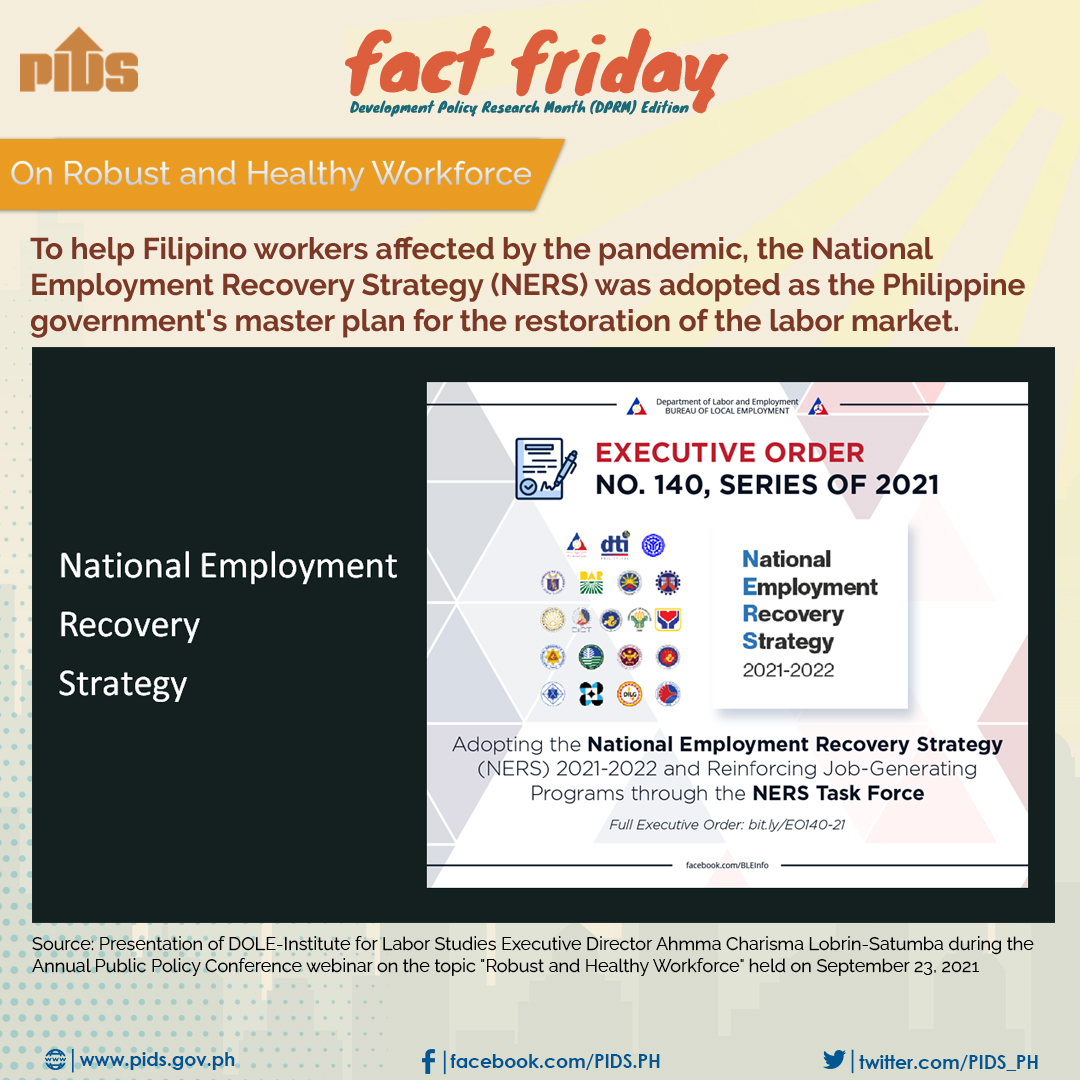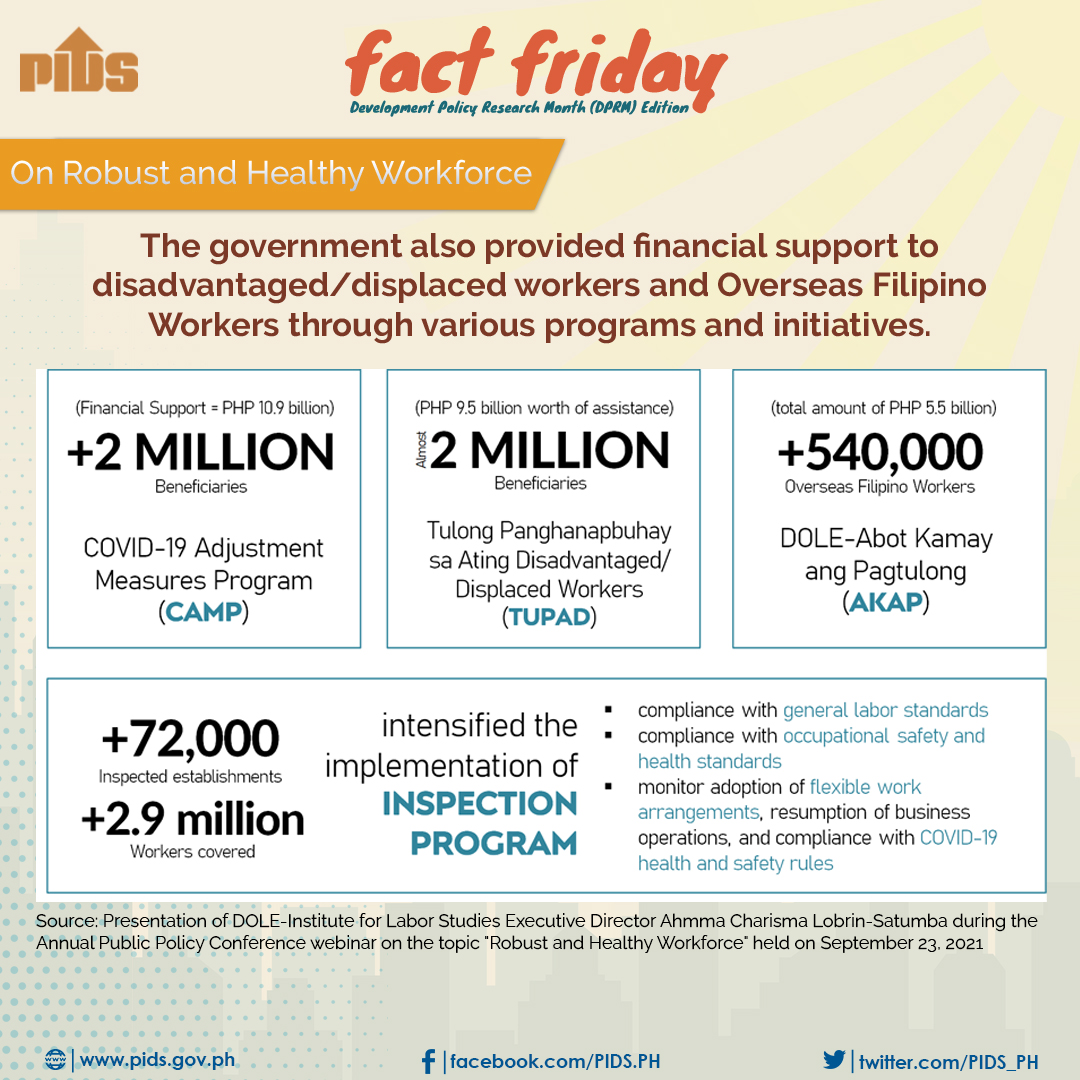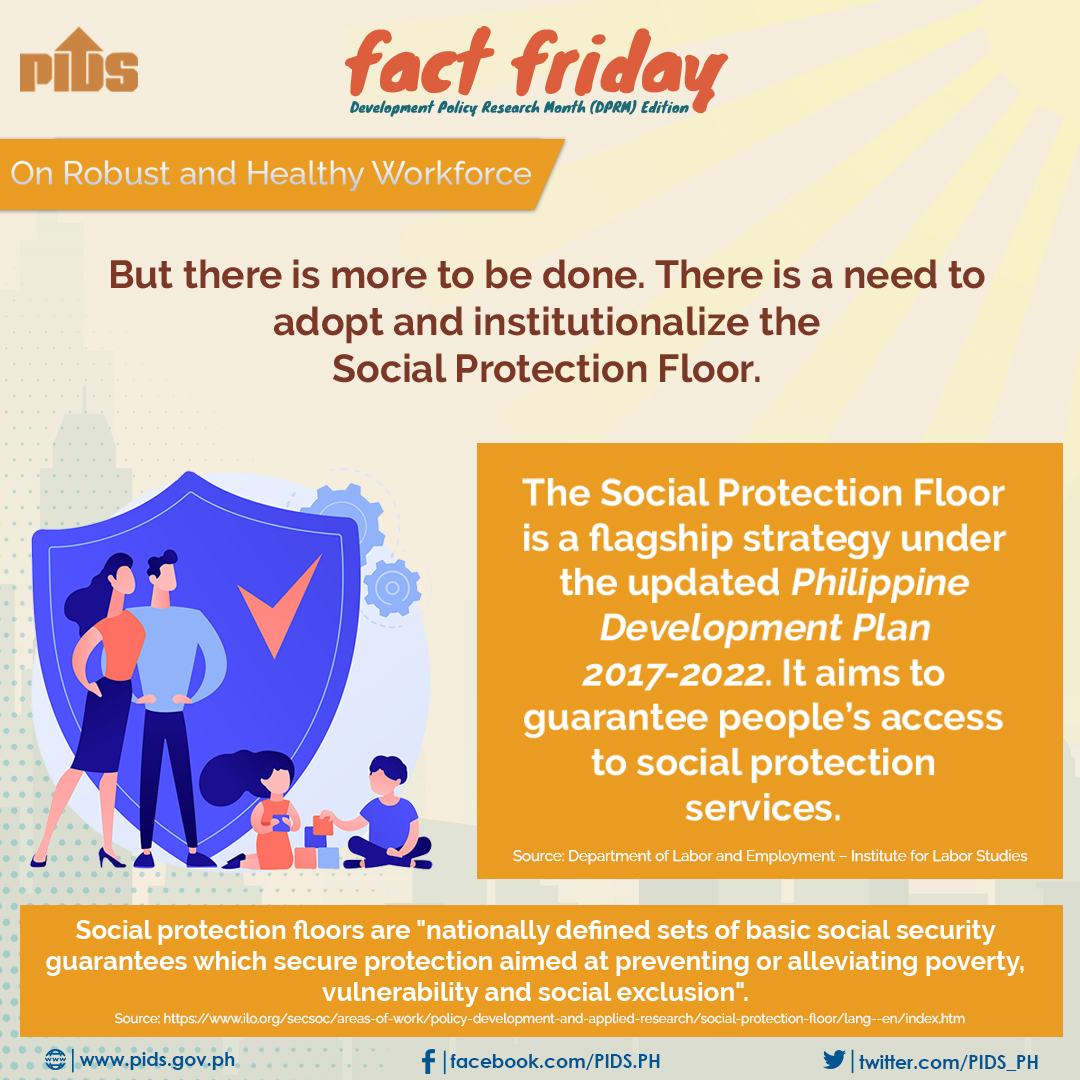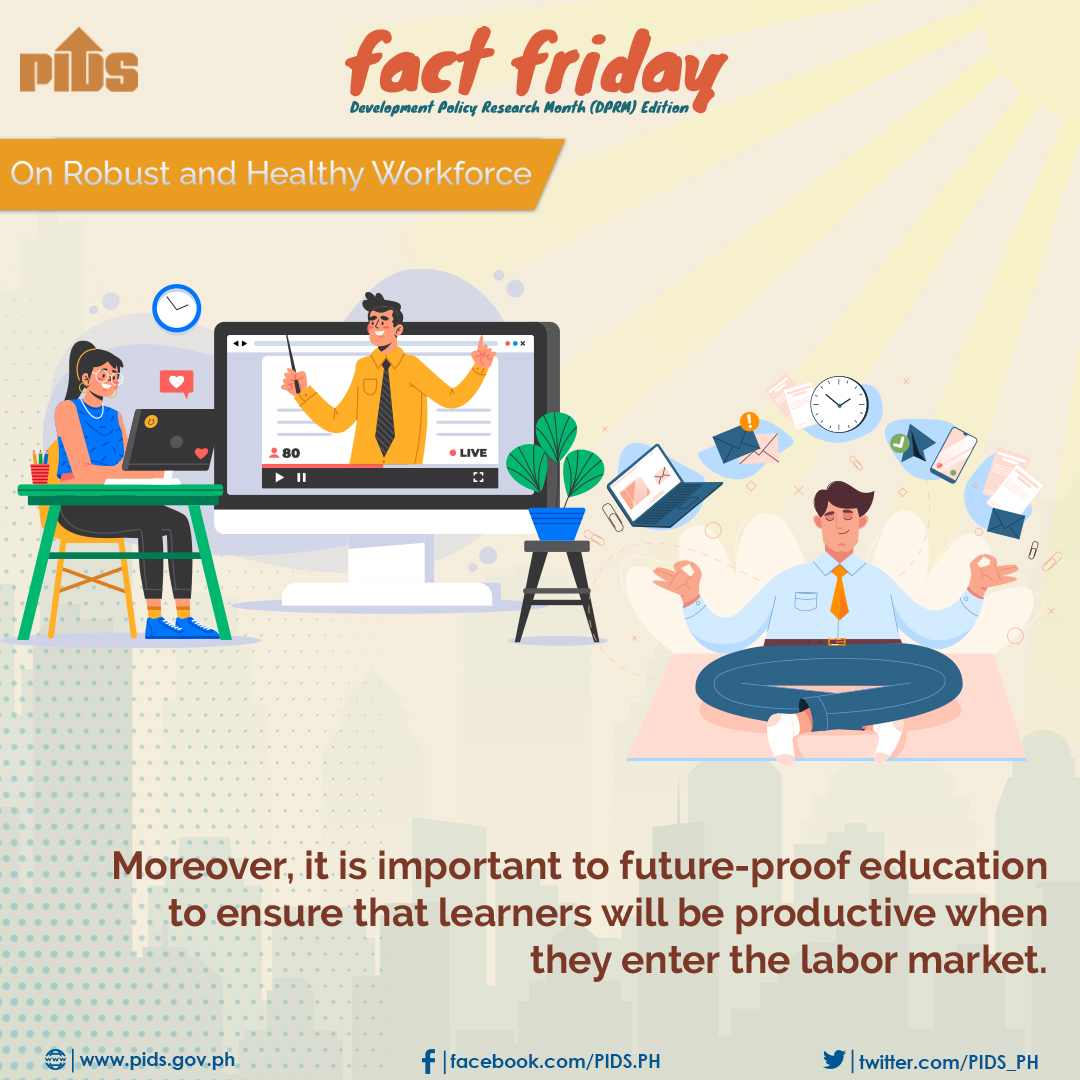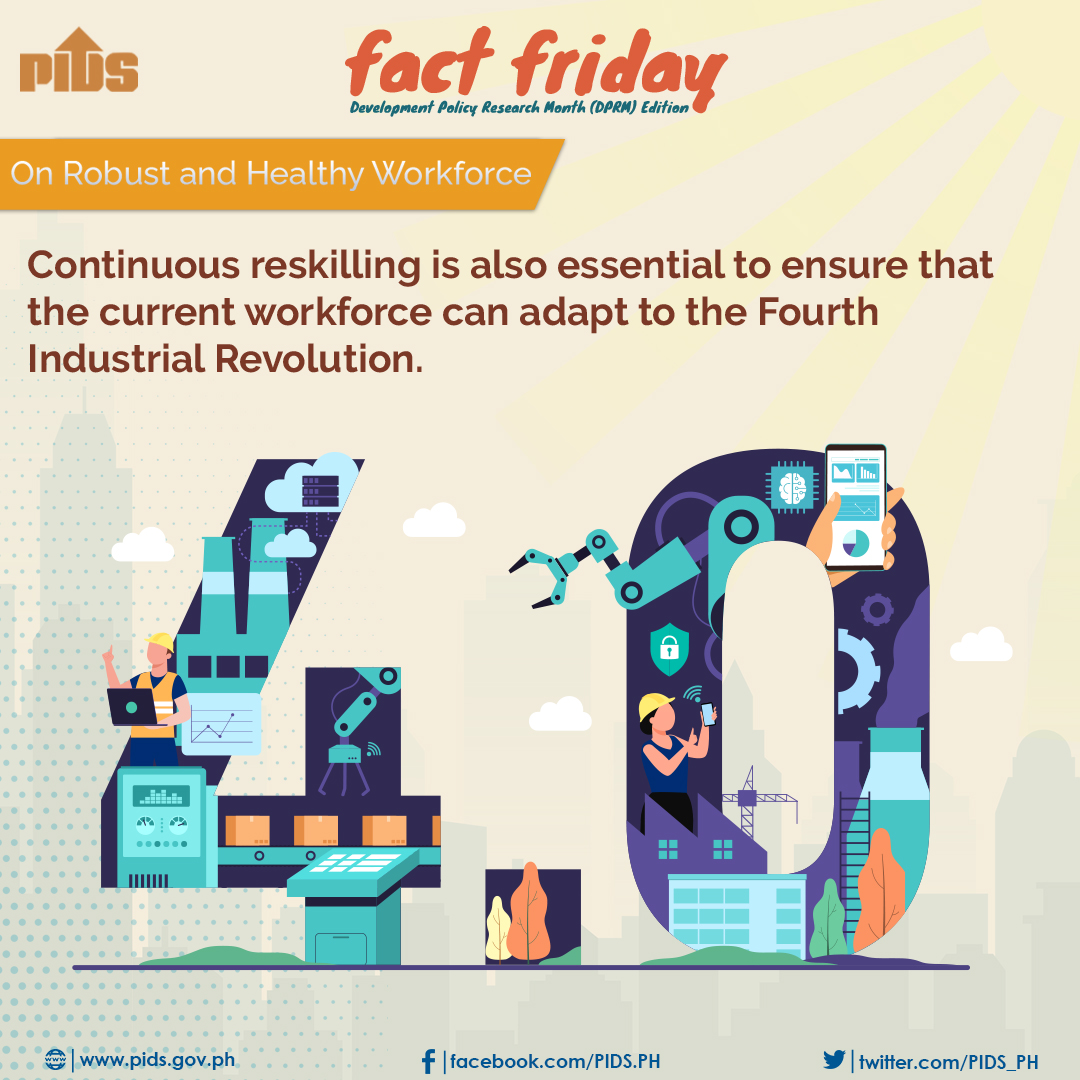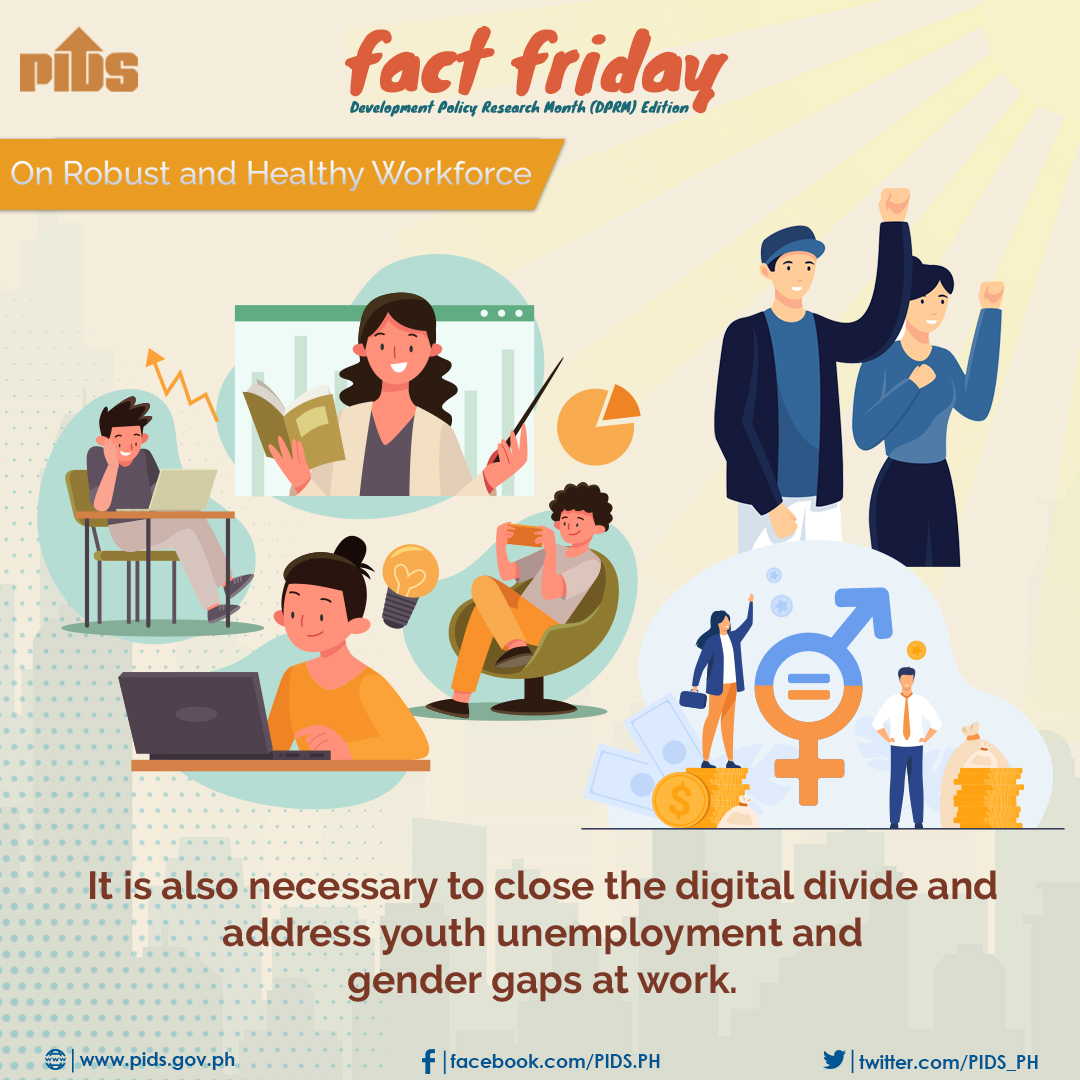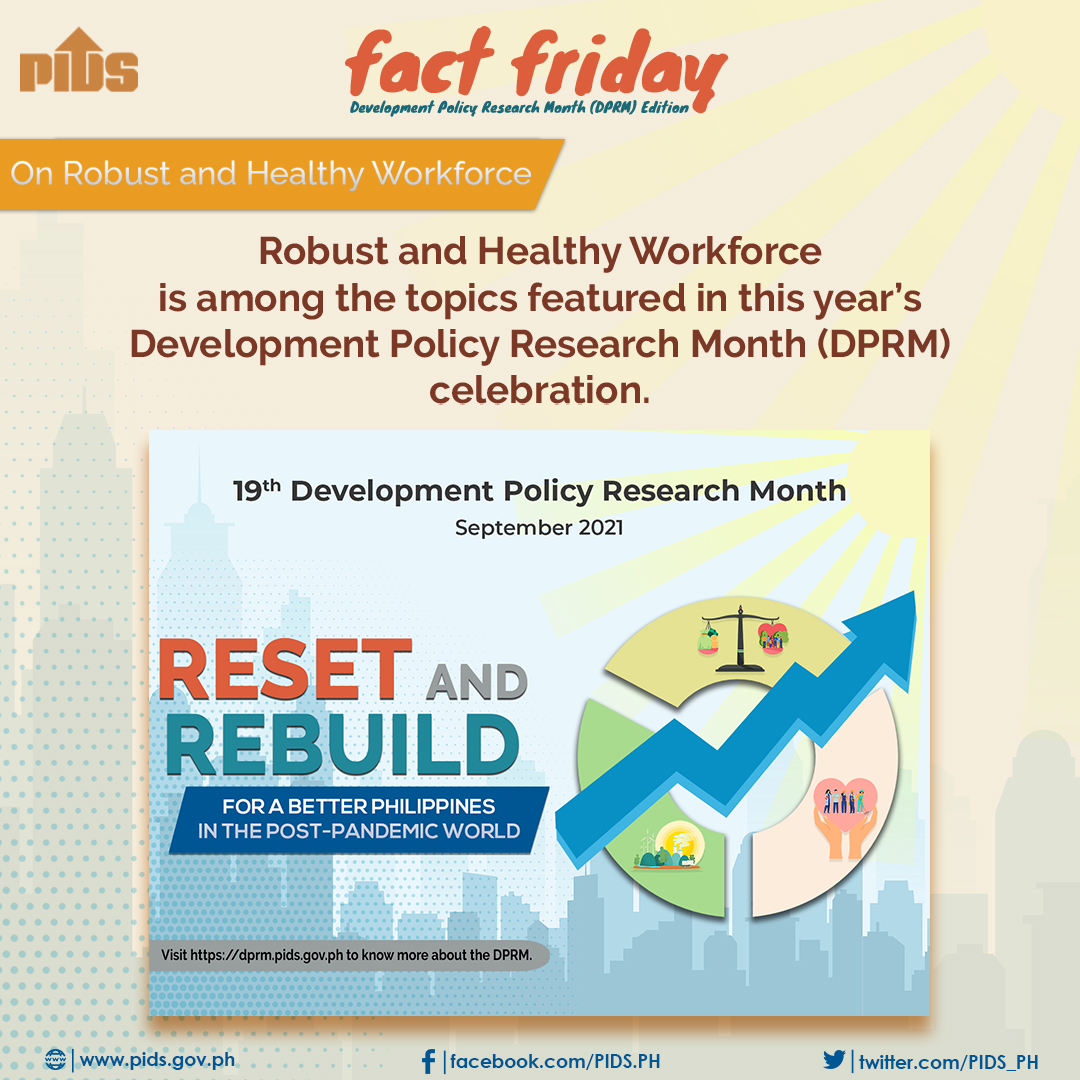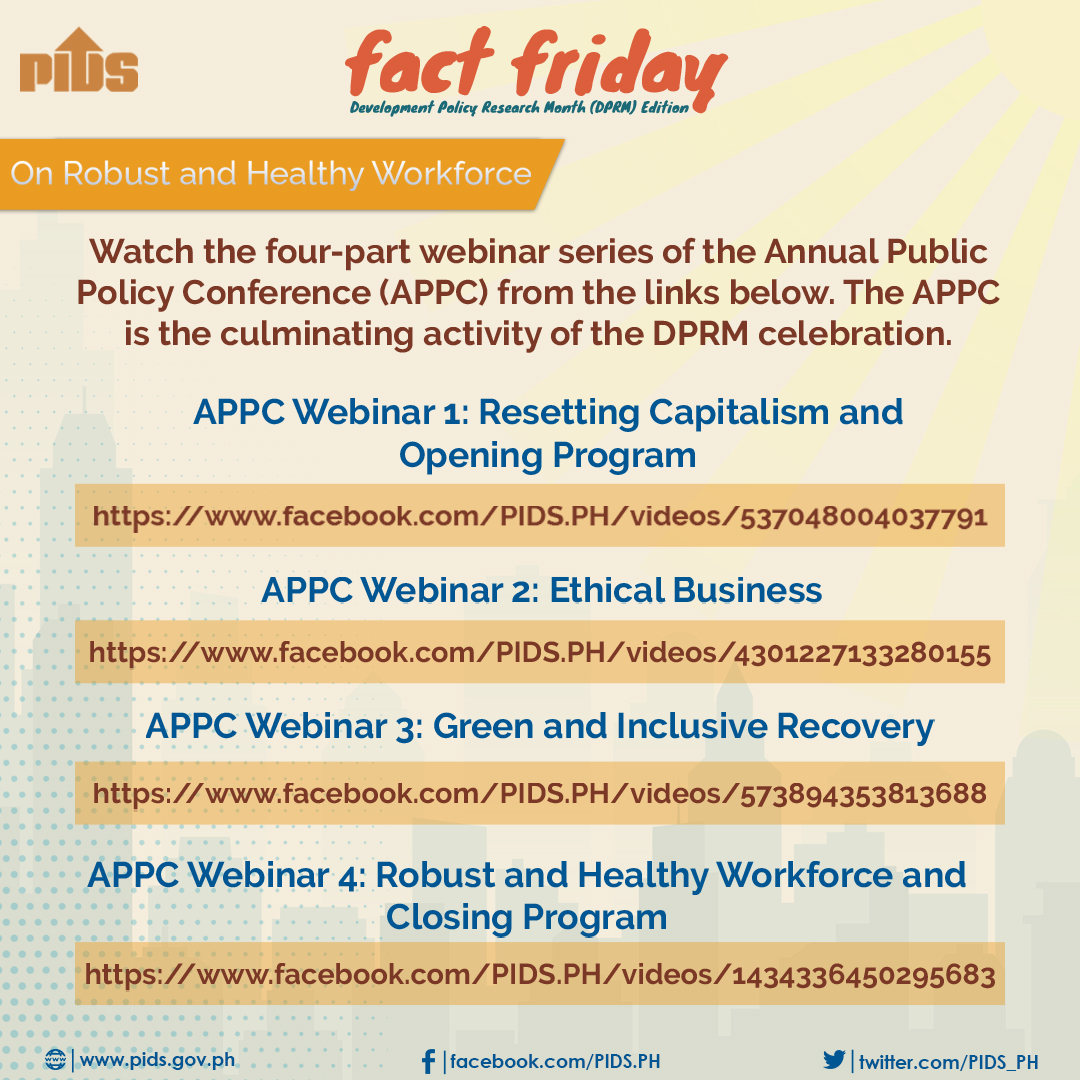INFOGRAPHICS
Development Policy Research Month
The Development Policy Research Month (DPRM) is celebrated every September pursuant to Malacañang Proclamation 247 in 2002 that underscores the vital contribution of policy research to national development and nation-building. The proclamation also designates the Philippine Institute for Development Studies (PIDS) to coordinate all the activities lined up to mark and celebrate the DPRM.
The DPRM highlights the importance of policy research in crafting evidence-based plans, policies, and programs through the use of data and evidence in planning and policymaking by the country's leaders and decisionmakers. It also aims to raise the public's awareness of socioeconomic issues.
Each year, a theme is selected, which is usually a current or emerging development issue.
This year's DPRM theme is “Reset and Rebuild for a Better Philippines in the Post-Pandemic World” to emphasize that to be able to rebuild from the COVID-19 pandemic and create a better Philippines, we need to reset our paradigms and practices by balancing the interests of people, profit, and planet or by placing equal importance on economic, social, and environmental well-being and sustainability.
Resetting Capitalism
As we continue to fight the COVID-19 pandemic, we must anticipate that the ‘old-normal’ ways of living may not return. While the current pandemic is likely to become endemic in the future, the threat of public health issues remains, on top of existing problems, such as climate change, food insecurity, and increasing inequality and poverty. To better cope with current and emerging threats, countries need to reset their paradigms and practices and rebuild toward a better normal. Both the public and the private sector may start by drawing lessons from the COVID-19 pandemic. These lessons include encouraging more studies on the incidence, distribution, and control of diseases in a population, as well as providing quality and accessible health care to everyone and effective social protection to the vulnerable. Businesses should explore ways on how they can be both profitable and socially responsible. And everyone should be encouraged to adopt more sustainable ways of life. For better outcomes, all stakeholders need to work together to ensure that the interests of people, profit, and planet are met.
Browse through the slides to know more about resetting capitalism, which is among the topics featured in this year’s Development Policy Research Month (DPRM) celebration.
The content of this slide show was based on the concept note for the theme of the DPRM/Annual Public Policy Conference.
Ethical Business
The COVID-19 pandemic has disrupted business operations on a massive scale. This led many establishments to reduce their activities or close down. The pandemic has also resulted in new environmental problems, such as the surge in the volume of wastes, which exacerbated prevailing climate change issues.
On a positive note, the crisis has made businesses rethink their values and pushed them to go beyond profit and consider the well-being of the planet and people. This embodies the principle of “stakeholder capitalism” or looking after the interests of all stakeholders and the society at large, not just of business shareholders, while pursuing productivity and continuity.
Some business groups in large free-market economies have already started a movement toward stakeholder capitalism. In the Philippines, more than 20 business associations signed the “Covenant for Shared Prosperity”. The Philippine Securities and Exchange Commission has also supported elements of stakeholder capitalism enshrined in the Code of Corporate Governance.
Browse through the slides to know more about ethical business, which is among the topics featured in this year’s Development Policy Research Month (DPRM) celebration.
The content of this slide show was based on the DPRM/APPC concept note.
Green and Inclusive Recovery
The COVID-19 pandemic has created new environmental problems such as the surge in the volume of wastes from the widespread use of single-use plastics. This exacerbates prevailing global environmental issues like climate change, air and water pollution, and waste management.
The pandemic has underscored the importance of environmental health and resilience. It calls for the country to aim for better air quality, improved water quality, and more effective waste management to reduce the vulnerability of communities to future threats and improve the overall well-being of people.
To address this, the government should ensure that climate targets and well-being targets complement each other, especially in the areas of food security, energy development and use, waste management, and conservation of green and blue ecosystems. With the growing threat of climate change-related diseases, it is essential to address the inequities in our health system, enhance universal health care, and improve water and sanitation services, particularly in underserved areas.
Business owners and operators can help by departing from the traditional operating model of profits over people and the environment by pursuing the “triple bottom line” (economic, social, and environmental value). Meanwhile, the public should start living more responsibly by adopting more sustainable lifestyles. A whole-of-society approach is essential in building environmental health and resilience to address the current pandemic and better prepare the country for future threats.
The content of this slide show was based on the DPRM/APPC concept note.
Robust and Healthy Workforce
The labor force was hardly hit by the COVID-19 pandemic. It caused massive unemployment and displaced millions of workers all over the world.
According to the International Labour Organization, 114 million jobs were lost in 2020 due to the pandemic. Of this number, 33 million people became unemployed while 81 million became inactive.
In the Philippines, the unemployment rate rose to 19.8 percent in April 2020 from only 5.1 percent in April 2019, based on data from the Philippine Statistics Authority.
The crisis has also exposed major gaps in the existing social protection systems for workers and highlighted the inequities faced by low-compensation and informal workers.
To help Filipino workers affected by the pandemic, the National Employment Recovery Strategy (NERS) was adopted as the Philippine government's master plan to restore the labor market. Financial support was also provided to disadvantaged/displaced workers and Overseas Filipino Workers.
But there is more to be done. There is a need to adopt and institutionalize the Social Protection Floor, future-proof education, and continuously reskill the workforce. Closing the digital divide and addressing gender gaps at work and youth unemployment are also essential.
The content of this slide show was based on the DPRM/APPC concept note.
Copyright © 2021. Philippine Institute for Development Studies. All Rights Reserved.

